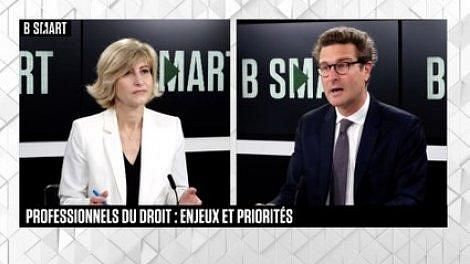
20/10/2023
The valuation date of social security contributions based on BSAs: a reversal of case law.
Redeemable share subscription warrants (bons de souscription d’actions « BSA ») enable excutive managers to buy shares from their company at a predefined price under conditions, such as the length of time they have to be retained or employed by the company.
Eventually, BSAs can either executed, enabling the employee to become the owner of the share, or be sold.
The Cour de cassation already ruled that BSAs can constitute an advantage which need to be subjected to social security contributions:
- when the BSAs are offered in return for or in connection with work
- On preferential terms
Hence, the following question emerges: How to and when to value BSAs for the purpose of calculating social security contributions?
By a judgment of the 4th of April 2019, the Cour de cassation ruled that the date to take into consideration was the date on which the BSAs were executable by the employee, i.e., the end of the “vesting” period.
The Cour de cassation overturned its position and ruled in a judgment of the 28th of September 2023, that the advantage must be valued on the date of execution or sale of the BSA.
It rules that social contributions must be based on either:
- The savings made by the beneficiary who, thanks to the BSA, acquires shares at a lower price than the market price
or
- The gain obtained by reselling the BSA at a higher price than that at which it was acquired.
While this solution makes it possible to determine the most accurate basis for social security contributions, in our view it raises a large number of questions when the BSA is issued or sold by a holder who is no longer an employee of the company.

19/09/2023
Evocation of the Chinon PDO – invalidity of the trademark
The EU designation of the International Registration No. 1 551 761, consisting of the word "SHINON" with two Chinese characters underneath, must be cancelled for “wines” insofar as it infringes the “Chinon” PDO.
Unsurprisingly, and following an analysis of the goods and signs, the EUIPO Cancellation Division considers that the International Registration is an evocation of the “Chinon” PDO.
The EUIPO found that there was an identity between the goods at issue designated by the trademark and those for which the PDO is protected.
Visually and phonetically, the two terms are also very similar given that the relevant European public will only pronounce the Latin terms. This assumption is reinforced by the evidence submitted by the IR holder, i.e. the label of the bottle of wine on which the trademark is depicted. On this label, the Chinese characters are difficult to perceive because of their silver colour on a white background.
It should be noted that the wine seems to have been produced for only one vintage, in 2017, on a Californian estate in Napa Valley, a long way from Indre-et-Loire.

22/06/2023
The Council of the EU adopts its position on a proposal for a directive that aligns penalties for violation of EU sanctions
The enforcement of EU sanctions is a member state responsibility and varies from one member state to another. Indeed, in some member states, infringement of the EU sanctions is a criminal offence punishable by prison sentences of between 2 and 12 years maximum, while in others states, only administrative sanctions can apply.
On December 2, 2022 the Commission submitted a proposal for a directive on the definition of criminal offences and penalties for the violation of EU restrictive measures.
The aim of this directive proposal is to align penalties for breaches of EU sanctions, in order to tighten the enforcement of the EU sanctions and to limit their circumvention.
On June 9, the Council adopted its negotiating position (general approach) on this proposal for a directive.
The draft law defines the conduct Member States will have to consider as criminal offences, which include (i) assisting persons subject to EU sanctions to circumvent an EU travel ban, (ii) trading sanctioned goods, or (iii) running transactions with states or entities subject to EU restrictive measures.
In addition, Member States are expected to update their legislation so that aggravating circumstances can be taken into account when determining the penalty (i.e. offence committed by a public official).
Member States will also have to provide for a limitation period that allows for proper law enforcement, take measures to freeze and confiscate the proceeds of the violation of restrictive measures, and guarantee cooperation between its various law enforcement and judicial authorities at national and European level.
The Council's general approach will be the basis for negotiations with the European Parliament to reach a common position on the draft directive.

20/06/2023
Not all queens are entitled to the title
Can a fancy dress design be declared invalid on the basis of another dress inspired by the same fictional character and previously marketed on an online platform?
On June 8, 2023, the Invalidity Division of the EUIPO answered in the affirmative, pointing out the lack of individual character of the registered design on the basis of Article 6 of the Community Design Regulation (CDR).
Pursuant to this Article, a design has individual character when it produces an overall impression on the informed user that differs from the one produced by a previously disclosed design.
The assessment of individual character factors the designer’s degree of freedom in developing his/her design, which itself influences the importance given to the differences between two designs. In the case at stake, the Office points out that the fact that the intended purpose of a product requires the presence of certain features does not automatically imply a limitation of the designer’s freedom
Fancy dresses mainly aim to imitate a particular person from a film or story, but this constraint alone is not sufficient to consider that the dress designer’s degree of freedom is restricted.
Therefore, the minor differences, relating to the shape of the cape and the intensity of the shade of blue, which exist between the two dress designs imitating the outfit of the character Elsa in the animated feature film "Frozen" are insufficient to characterise a different overall impression.
In the absence of an individual character, the design is invalid.
Finally, it is interesting to note that the Office based its decision on Article 6 CDR (individual character) and not Article 5 CDR (novelty) insofar as the back of the fancy dress sold on Amazon is not visible and the comparison between the two designs cannot therefore be complete.
This decision may be appealed within 2 months.

13/06/2023
Adoption by the European Parliament of the Directive on corporate sustainability due diligence (CSDD).
On 23 February 2022, the European Commission submitted to the European Parliament and the Council a proposal for a directive on corporate sustainability due diligence. The aim of this proposal is to oblige certain companies to integrate human rights and environmental impacts into their governance.
In November 2022, the Council adopted a position on the proposed directive.
On 1 June, the European Parliament adopted a common position on the proposed Directive CSDD.
Under the text voted by the Parliament, the Directive will apply to all (including financial services) EU-based companies with more than 250 employees and a worldwide turnover exceeding €40 million, parent companies employing over 500 employees and with a worldwide turnover exceeding €150 million, and non-EU based companies with a worldwide turnover higher than €150 million if at least €40 million are generated within the EU.
Companies subject to the legislation will be required to identify and mitigate negative impacts on human rights and the environment arising from their activities, and to monitor and assess the negative impacts of their value-chain partners (suppliers, sale, distribution, transport, etc.).
Companies will also have to implement a transition plan to limit global warming to 1.5°. For companies employing more than 1,000 employees, failure to meet the objectives of the plan could affect the remuneration of their directors.
The penalties in case of breach of the obligations resulting from de the Directive CSDD can include fines amounting to a minimum of 5% of the company’s net worldwide turnover, and, in certain circumstances, a ban on public procurement within the EU for non-EU based companies.
Therefore, the Directive adopted by Parliament goes further than the French law on the "devoir de vigilance", which covers a more restricted scope of companies and does not provide for fines.
According to the text adopted by Parliament, companies subject to the legislation will have 3 to 4 years, depending on their size, to implement their obligations under the Directive.
The text of the Directive is not final yet. The Parliament, the Council and the Commission still have to negotiate the final draft of the text.
Once adopted, the directive will complete the corpus of European legislation on protection of human rights and the environment: the regulation on deforestation, the conflict minerals regulation and the draft regulation on prohibiting products made with forced labour on the Union market .

08/06/2023
The French Anti-Corruption Agency publishes a Compendium of practical information on indexes for measuring a geographical area's exposure to the risk of corruption.
The Sapin 2 Law requires the managers of companies with more than 500 employees and a turnover greater than €100 million, as well as their subsidiaries and managers, to implement measures to prevent and detect breaches of probity in France or abroad.
This anti-corruption compliance system shall include, among other measures:
-
a regularly updated risk map designed to identify, analyze and prioritize the risks of the company's exposure to external corruption-related solicitations, based among other criteria on the geographical areas in which the company operates;
-
procedures for assessing the situation of clients, first-tier suppliers and intermediaries with regard to risk mapping.
These two measures therefore require knowledge of the risk of committing acts of corruption inherent in each geographical area.
Geographical location is not the only factor in assessing the risk of corruption, but it is nonetheless a central criterion.
In this context, the AFA published a compendium of indexes elaborated by international organizations, governments, financial institutions, private entities, NGOs...
The AFA refers to two categories of indexes:
-
indexes measuring the risk of corruption in a given geographical area;
-
indexes which, while not all having the primary objective of assessing the risk of corruption, integrate this risk.
In addition to these indexes, the AFA lists a number of documentary resources useful for assessing the risk of corruption:
-
state evaluation reports on the risk of corruption drawn up by international organizations (UN, OECD...), academic institutions or leading NGOs;
-
additional tools (list of non-cooperative states and territories, list of individuals and states subject to international sanctions, etc.).
Although they do not constitute a "turnkey" tool for establishing a risk map or assessing the situation of third parties in relation with the organization, these indexes and documentary resources contribute to the assessment of a geographical area's exposure to the risk of corruption.
Isn't it time to review your risk map and submit it to our Probity team's stress test?
#compliance
#anticorruption
#riskmap

06/06/2023
Publication, par l’Agence Française Anti-corruption, de ses résultats d'enquête statistique sur la prévention et la détection des atteintes à la probité au sein des secteurs fondatif et associatif
En janvier 2022, l’AFA rendait public son Guide pratique intitulé « Maîtriser le risque d’atteinte à la probité au sein des associations et fondations reconnues d’utilité publique - Bonnes pratiques relatives à la gouvernance et la gestion du don ».
Le 25 mai 2023, l’AFA a publié les résultats de son enquête statistique sur la prévention et la détection des atteintes à la probité au sein des secteurs fondatif et associatif.
Une enquête élargie...
Pour rappel, en application de l’article 3 de la Loi Sapin 2, les associations et fondations reconnues d'utilité publique doivent mettre en œuvre des procédures pour prévenir et détecter les faits de corruption, de trafic d'influence, de concussion, de prise illégale d'intérêt, de détournement de fonds publics et de favoritisme ; à charge pour l’AFA d’en contrôler la qualité et l’efficacité.
Pour autant, l’enquête statistique de l’AFA ne s’est pas limitée aux seules associations et fondations reconnues d'utilité publique, mais a été étendue à l’ensemble du secteur associatif et fondatif.
En préambule de son rapport, l’AFA explique que de nombreuses associations/fondations, bien que non soumises aux dispositions de la Loi Sapin 2, manient des fonds publics et à ce titre sont exposées au risque d’infractions d’atteinte à la probité.
Au total, 575 organisations ont répondu à deux questionnaires :
- l’un concernait les ARUP, les fédérations sportives, toutes les sortes de fondation (FRUP, d’entreprise, de coopération scientifique, partenariale, …) et les fonds de dotation ;
- l’autre concernait toutes les associations (hors ARUP) en privilégiant celles recevant des subventions publiques ou faisant appel à la générosité du public.
Peut mieux faire!
A la suite de son enquête, l’AFA dresse un bilan en demi-teinte de la mise en œuvre des mesures anticorruption au sein des secteurs associatif et fondatif : « Si les associations et fondations n’ont pas encore pleinement intégré le risque corruptif dans leur gestion au quotidien, l’enquête menée en 2022 par l’AFA démontre que ces organisations ne sont pas totalement inactives en la matière, même si ce n’est pas toujours intentionnel ».
L’AFA conclut (prévient ?) « Il ne reste plus aux organisations qu’à se saisir de ces constats et de l’ensemble de la documentation mise à disposition par l’AFA pour que 2023 devienne un tournant dans la lutte anticorruption pour les secteurs fondatif et associatif ».
A bon entendeur…
Manque de maturité
Tout d’abord, le rapport présente les résultats concernant les organisations soumises au contrôle de l’AFA et le secteur fondatif (1er questionnaire) :
- 75 % des 213 organisations qui ont répondu sont des ARUP ou des FRUP ;
- 47,4 % des répondants déclarent n’avoir mis en place aucune mesure pour prévenir et détecter spécifiquement les atteintes à la probité́ ;
- 19,2 % ont mis en place un dispositif anticorruption formalisé ou s’apprêtent à le faire ;
- 33,3 % ont adopté́ certaines mesures anticorruptions ou sont en train de le faire ;
Pour ces organisations, le coefficient de mise en œuvre révèle une maturité assez faible en matière d’anticorruption :
- 23,9 % des répondants ne mettent réellement en œuvre aucune mesure ;
- 57,3 % des répondant appartiennent à la classe « faible mise en œuvre » (mise en œuvre au mieux de 40 % des mesures anticorruption recommandées par l’AFA).
Ensuite, concernant le secteur associatif hors ARUP (2cnd questionnaire), le coefficient de mise en œuvre des mesures anticorruption démontre également une maturité encore assez faible, mais dans une proportion nettement plus significative : 84,3 % des répondants mettent en place moins de 10 % des mesures anticorruption utiles au regard de leur profil de risque.
Vos besoins, nos réponses:
Les organismes à but non lucratif sont exposés au risque de corruption au même titre que les acteurs du secteur marchand.
L’équipe Probité de Guillemin Flichy connaît particulièrement bien les secteurs associatif et fondatif, que nous accompagnons depuis de nombreuses années.
Diagnostiquer l’exposition au risque, concevoir des dispositifs anticorruptions sur mesure et compatibles avec l’ADN de votre association ou de votre fondation, former les administrateurs et dirigeants, moderniser la gouvernance à l’aune des nouveaux standards…Autant de solutions que notre équipe est en mesure de vous apporter.

23/05/2023
Golden hello : the clause on the reimbursement of the welcome bonus in case of resignation is valid
The golden hello, or welcome bonus, is a practice which consists in paying a bonus to the newly hired employee, in order to encourage him to join his new employer and to build up the employee's loyalty over time.
In practice, the mechanism is as follows: the employee receives the full bonus upon arrival, but it is generally provided that if the employee resigns before a certain deadline, he or she will have to repay the bonus in proportion to the time not spent in the company.
The question raised was therefore the following : does the golden hello reimbursement clause infringe on the employee's fundamental freedom to work?
The employee's reasoning, validated by the Paris Court of Appeal, was that this reimbursement clause had the effect of setting a cost to the resignation, and therefore infringed his freedom to resign.
The French Cour de Cassation (May 5, 2023, No. 21-25.136) overturned this argument, ruling that :
- The purpose of the welcome bonus was to secure the loyalty of the employee in order to ensure his long-term collaboration.
By referring to good faith and to article 1134 of the Civil Code (now articles 1103 and 1104 of the Civil Code), the Cour de Cassation implicitly indicates that the employee had agreed to the conditions of acquisition of this bonus, the purpose of which he knew.
- The welcome bonus is independent of the employee's remuneration, which is not affected by the resignation.
Consequently, and without infringing on the employee's fundamental rights, the employer can demand the reimbursement of the bonus in proportion to the time not spent in the company.
Conversely, it does not seem allowed to ask for the reimbursement of the entire golden hello if the employee resigns before the fixed deadline.

16/05/2023
Bill to secure and regulate the French digital space
Intended to strengthen the protection of adult and underage Internet users but also of companies in the data market, this bill was introduced on May 10, 2023.
Firstly, it provides for adaptation of French law to the provisions of the European regulations adopted in this area in 2022 (Digital Services Act, Digital Markets Act and Data Governance Act), and anticipates certain provisions currently under discussion as part of the new draft regulation on data (Data Act).
Among the additional measures proposed, the following can be highlighted:
- the introduction of a cybersecurity filter to prevent fraudulent access to personal or bank details;
- the attribution of a normative power and a power of intervention to the French Audio-visual and Digital Communication Regulatory Authority (ARCOM) concerning checks on minors' access to pornographic content;
- the possibility of temporarily suspending an account on an online platform service for the perpetrators of certain offences, including cyber-harassment and apology for acts of terrorism;
- the facilitation of interoperability between different cloud computing services and the financial penalties that can be imposed by the French agency in charge of regulating telecommunications, postal services and print media distribution (ARCEP); and
- the fight against foreign interference and online disinformation.
In addition, the government plans to create a supervisory authority at the French Supreme Courts (Cour de Cassation and Conseil d’Etat) for the processing of personal data by the judicial and administrative courts.
Finally, the government will be empowered to take measures by ordinance to supervise, regulate and control games incorporating monetisable digital objects (games incorporating technologies such as blockchain and NFT). On this point, in its opinion issued on 27 April, the Conseil d’Etat considers that in this case “the provisions relating to the definition of the category of “games with monetisable digital objects” cannot be retained”.

12/05/2023
JAN-BAUDOUIN LALLEMAND, NEW MEMBER OF THE PROBITY TEAM
Newcomer to the Guillemin Flichy team, Jan-Baudouin Lallemand joins our Probity team to assist our clients on their issues of governance, compliance and civil and criminal liability.
The core business of our Probity team ? Legal and judicial management of reputational risk.
#governance #compliance #penal #leaders #internalinvestigations #dutyvigilance #sanctions
Welcome Beaudouin !

11/05/2023
Corporate sustainability due diligence and fight against global deforestation in the European Union : The lastest developpements
On 25 April, the European Parliament's Legal Affairs Committee (JURI) adopted its position on the proposal for a directive on corporate sustainability due diligence.
On 23 February 2022, the European Commission submitted to the Parliament and the Council a proposal for a directive on corporate sustainability due diligence. The aim of this proposal is to oblige certain companies to integrate human rights and environmental impact into their governance.
The European Parliament's Committee on Legal Affairs (JURI) was entrusted with the supervision and direction of the parliamentary work of the various committees with shared competence on this proposal.
On 25 April 2023, the JURI Committee announced in a press release that it adopted a common position on the directive proposal.
In committee, Members of the European Parliament (MEPs) – among other things – extended the scope of the companies covered by the directive. Indeed, MEPs want “EU-based companies with more than 250 employees and a worldwide turnover higher than 40 million euro, as well as parent companies over 500 employees and a worldwide turnover higher than 150 million euro”, as well as “non-EU companies with a turnover higher than 150 million euro if at least 40 million was generated in the EU" to be covered by the directive.
By way of comparison, the French “devoir de vigilance” only applies to companies with more than 5,000 employees in France or 10,000 employees worldwide.
The position adopted by the JURI Committee still needs to be approved at the plenary session of the Parliament, which is expected to take place on 1 June.
Once the position is adopted in plenary, negotiations with the Council on the final text of the directive will start.
On 19 April, the European Parliament announced the adoption of a new regulation on the import of commodities and products associated with deforestation and forest degradation.
This regulation aims to control the sale of the following products within the European Union (EU): cattle, cocoa, coffee, palm oil and its derivatives, soya and wood, rubber, charcoal and printed paper products. Are also cover by this regulation, products that contain or have been made from these raw materials, such as leather, chocolate and furniture.
Under this regulation, companies will only be allowed to sell products in the EU if the supplier of the product issued a “due diligence” statement confirming that the product is not associated with deforestation and/or forest degradation.
Companies will also have to ensure that products comply with the laws of the country of production, notably on human rights and rights of indigenous people.
The Commission will rank producing countries by risks level (low-, standard- or high-risk) which will determine the level of due diligence that companies will have to perform.
According to the European Parliament’s press release, the maximum fine in case of violation of the regulation must be at least 4% of the total annual EU turnover of the non-compliant company.
The regulation still must be formally endorsed by the Council before being published in the EU Official Journal. It will enter into force 20 days after its publication.

26/04/2023
The presumption of resignation of an absent employee, or how to make the employers bear a responsibility that should not be theirs.
The presumption of resignation of an absent employee, or how to make the employers bear a responsibility that should not be theirs.
Depending on the employer's assessment of the justification of the absence, an employee may be deprived of unemployment benefits. Is this really an employer's responsibility? Our first thoughts on this new procedure
Article L. 1237-1-1 of the French Labor Code has established a new principle: an employee who abandons their position and does not come back or does not justify their absence despite a formal notice from their employer is presumed to have resigned and will therefore be deprived of unemployment benefits.
The terms of implementation of this presumption were specified in a decree dated April 17, 2023:
- The employer must give notice to the employee to return to their position or to justify their absence, by registered letter with acknowledgement of receipt or by letter delivered by hand ;
- At the end of a minimum period of 15 days from the notification of the formal notice, if the employee has not justified their absence, they will be presumed to have resigned.
From a purely practical point of view, one may wonder how an employer would be able to hand-deliver to an absent employee a letter of formal notice to return to work.
On substance, most employees will refuse the principle of a resignation, which would cause them to lose the right to unemployment compensation, and will justify their absence in one way or another.
It will then be up to the employer to decide whether or not it is a resignation, a decision that will have serious consequences for the employees.
Let's admit that it was more reassuring for the employer to proceed with a dismissal for serious misconduct or for simple misconduct and, in the latter case, not to pay the employee during his notice period, on the grounds that they were unjustifiably absent.
In this case, the employer was not responsible for seeing the employee deprived of unemployment compensation.
The question arises as to which compensation the employer will be liable for if they presume an unjustified or even abusive resignation. What will the employee be entitled to, a backpayment of unemployment compensation, damages for dismissal without real and serious cause, or separate damages ?
Is the administration not insidiously transferring its responsibility to identify employees who try to circumvent the conditions of unemployment compensation ?
This reform places the responsibility on employers - or any human resources team - to decide that an employee will be deprived of unemployment benefits and therefore potentially of any resources, because of an absence. Is this really its role ?
On the other hand, is it wise to give employers the prerogative of being able to deprive an employee of all unemployment benefits on the grounds that they consider the employee's absence to be a resignation ?
The employee would then be obliged to urgently refer the matter to the Employment tribunal in a context where they will be without resources, with the fear that in case of recognition of a resignation, he may be liable to the employer for their notice period.
The administration should have, at the very least, set a limit to the possible justifications of the absence of the employee, in order to protect both employers and employees.
In any event, these questions lead us to express the strongest reservations about the merits of this reform.

12/04/2023
Are rappers' voices easier to imitate than opera singers'?
A few days ago, a video posted on twitter reproduced the voice of the famous rapper Jay-Z with the help of an artificial intelligence, suggesting that the rapper had just released a new song, almost 5 years after his last album.
Fans' hopes were short-lived. The track, whose lyrics and arrangement were created by a French DJ duo, had a vocal imitation filter applied.
Back in February, DJ David Guetta decided to imitate Eminem's voice for a verse.
This raises the question of the appropriation of vocal identity by artificial intelligence technologies.
Under French law, the “droit à la voix”, as an attribute of the personality, is protected on the basis of Article 9 of the French Civil Code. As early as 1975, the Paris first instance Court sanctioned the use of an actor's verbal characteristics in an advertising spot.
More recently, the CNIL recalled in its white paper on voice assistants that the voice is a "personal data which, depending on the use made of it, has a variable geometry".
The voice, even if it is widely known to the general public, is therefore protected. Consequently, the use of voice data by artificial intelligence systems without the prior authorisation of the person whose voice is reproduced is objectionable

21/03/2023
Publication par l'AFA de deux nouveaux guides pratiques, l'un sur l'évaluation de l'intégrité des tiers, l'autre sur les enquêtes internes
Le 8 mars, l’Agence Française Anticorruption (AFA) a publié un recueil de fiches pratiques sur les bases d’information publiques utiles à l’évaluation de l’intégrité des tiers.
L’évaluation de l’intégrité des tiers est l’un des huit piliers du dispositif anticorruption prévu à l’article 17 de la loi n° 2016-1691 du 9 décembre 2016 relative à la transparence, à la lutte contre la corruption et à la modernisation de la vie économique (Loi Sapin II).
En introduction de son recueil, l’AFA rappelle que les sociétés assujetties à la Loi Sapin II peuvent évaluer l’intégrité de leurs tiers de plusieurs manières, et notamment en procédant à la collecte et à l’analyse d’informations disponibles sur des bases d’information librement accessibles.
Le recueil publié par l’AFA vise :
- à établir une liste non exhaustive de ces bases d’information publiques et ;
- à préciser les utilisations possibles de celles-ci dans l’exercice d’évaluation de l’intégrité des tiers.
Le 14 mars, l’AFA et le Parquet National Financier (PNF) ont publié un guide pratique relatif aux enquêtes internes anticorruption.
Ce guide pratique vise à accompagner les organisations – assujetties ou non à la Loi Sapin II – sur la conception et la mise en œuvre de leur dispositif d’enquête interne anticorruption dans le respect des droits et libertés individuelles.
Il décrit, étape par étape, le déroulement d’une enquête interne : de ses faits générateurs, aux conditions et aux modalités de sa réalisation, jusqu’aux suites à y donner et aux conséquences à en tirer.
Il y est précisé en introduction que l’enquête interne anticorruption étant l’une des suites à donner au dispositif d’alerte interne prévu par l’article 17 de la Loi Sapin II, elle doit être considérée comme faisant « partie intégrante du dispositif anticorruption ».
Ce guide donne de nombreux conseils pratiques dans la conduite d’une enquête interne, comme le fait de formaliser, en amont, une procédure d’enquête interne.
Ce guide, co-écrit par l’AFA et le PNF, s’inscrit dans un contexte :
- de renforcement du cadre juridique en matière de recueil des signalements et de protection des lanceurs d’alertes et ;
- de développement de la justice négociée, dans le cadre de laquelle une coopération forte des organisations avec les autorités de poursuite est attendue, pouvant se matérialiser par la conduite d’une enquête interne loyale et structurée.

13/03/2023
Ranking Décideurs Magazine 2023 | IP-IT
Our IP-IT team has once again greatly distinguished!
"Excellent" for "Industrial Property - Trademarks, Litigation" | “Highly Recommended" for "Innovation, Technologies & Telecoms - Personal Data Law" & "Renowned Practice" in the category "Innovation, Technologies & Telecoms - IT, Software & Digital Projects".
Thanks to all our clients for their unwavering trust.

02/03/2023
Reminders on the determination of the criteria for the order of dismissal
In case of collective dismissal for economic reasons, the employer must be able to demonstrate the validity of the criteria applied.
Two rulings of January 18, 2023 call for caution in the determination of the criteria of order in the context of a collective dismissal for economic reasons.
In accordance with article L. 1233-5 of the French Labor Code, the employer must take into account the following criteria when determining the order of dismissals:
- Family responsibilities, in particular those of single parents;
- Seniority of service in the establishment or company;
- The situation of employees with social characteristics that make their professional reintegration particularly difficult, in particular that of handicapped persons and elderly employees;
- The professional qualities assessed by category.
In the event of a dispute, the employer must be able to justify by objective elements the validity of the criteria applied.
Thus, the Court of Cassation considers that the following criteria are not relevant:
- The professional quality cannot be assessed solely on the basis of the level of diploma, more particularly if the diploma is not relevant to the functions performed (Cass. Soc., January 18, 2023, n°21-19.675) ;
- Family responsibilities cannot be weighted according to the age of the dependent child, as this distinction is not relevant and objectively justified with regard to the real responsibility of the children in view of their age (Cass. Soc., January 18, 2023, n°21-19.633).
The assessment of the criteria of order therefore remains a particularly sensitive issue in the case of collective redundancies for economic reasons. If the employer fails to comply, he is liable to pay damages to all employees who have suffered prejudice as a result.

14/02/2023
Anouk Bréjon, new member of the Probity team
We are delighted to welcome Anouk Bréjon as an associate.
Anouk joins our Probity team, dedicated to compliance (#anticorruption, #exportcontrols, #vigilance), criminal business law and corporate governance.
One more talent in our team! Welcome Anouk!

31/01/2023
“So then I took my turn / Oh, what a thing to have done / And it was all yellow”
The colour yellow PANTONE 123 C cannot be registered as a trade mark due to its lack of inherent distinctiveness for dating applications, the specification of the wording as to the person initiating the interactions being irrelevant.
In accordance with Article 7(1)(b) EUTMR, the Board of Appeal recalls that a colour can only be considered inherently distinctive in exceptional circumstances, namely when it is unusual or striking and designates a very restricted number of goods and services in a specific market.
After the initial refusal of its trade mark application, Bumble limited the wording of the goods and services designated. It considered that, as (i) the target public was very limited, (ii) the colour was clearly defined and accompanied by a Pantone reference, and (iii) it was used prominently (unlike its main competitors), the colour could exceptionally be qualified as distinctive.
In its decision dated 9 January 2023 (R 1083/2022-1), the Board rejected these arguments, finding that the colour yellow, because of its eye-catching character, is frequently used in sector of software applications, making it a basic colour for this category of goods. It also noted several other dating applications using a prominent yellow colour, regardless of the fact that these applications did not exist at the launch of the Bumble application.

17/01/2023
Publication of the new French Financial Prosecutor’s Guidelines on the implementation of the French Deferred Prosecution Agreement
On January 16, the French Financial Prosecutor’s (Parquet national financier – “PNF”) published a new version of its Guidelines on the implementation of the Judicial Convention of Public Interest, (i.e., the French Deferred Prosecution Agreement – “CJIP”).
Aiming to strengthen the transparency, predictability and readability of the CJIP, these Guidelines provide details concerning:
- The manner in which the prosecution assesses the company’s good faith, the latter having to actively participate in the manifestation of the truth by conducting an internal investigation;
- The bargaining terms between the company and the prosecution (for instance, the scope of exchanges’ confidentiality, access to the case files, the consequences in case of bargaining failure, etc.);
- The methods of calculating the public interest fine (amende d’intérêt public), in its two dimensions, both "restitutive" and "afflictive." The Guidelines list the criteria likely to increase or reduce the fine’s amount, as well as their ceilings;
- The validation of the CJIP and its consequences.
These new Guidelines replace a former version, adopted jointly by the PNF and the French Anticorruption Agency on June 27, 2019.

05/01/2023
Happy new year 2023!

20/12/2022
The European Commission proposes to criminalize the violation of EU sanctions
On December 2, the European Commission has put forward a Directive proposal aimed at harmonizing criminal offences and penalties for the violation of EU restrictive measures.
Such proposal seeks to establish the same level of penalties in all Member States and thus increase the deterrent effect of violating EU sanctions. Indeed, pursuant to the proposal, a natural person could be liable to a maximum penalty of at least five years in prison, while companies could be liable to penalties of no less than 5% of their total worldwide turnover.
The proposal will now be discussed by the European Parliament and the Council.

13/12/2022
Application for a declaration of invalidity of trademarks: lack of interest in bringing proceedings
In a decision dated December 7, 2022, the French Supreme Court recalls that an economic operator who is neither sued for infringement of the trademarks subject to the application for a declaration of invalidity, nor able to justify an obstacle to the exercise of its economic activity due to the filing of the trademarks in question, does not have any interest in bringing proceedings.
In this case, the invalidity of several trademarks, including French trademarks composed of the terms “Dom Pérignon”, “Ruinart”, “Clicquot” and “Moët & Chandon” was sought.
In order to establish its interest in bringing proceedings, the applicant company relied, in particular, on infringement actions brought, in France and in the Netherlands, against it by the company owning these trademarks.
However, the infringement proceedings were based on EU or international trademarks, and not on French trademarks.
The French Supreme Court therefore dismissed the appeal and held, as did the Court of Appeal, that the applicant did not have a legitimate interest in the absence of infringement proceedings against the French trademarks including the identified terms, and in the absence of infringement of its prior rights by those trademarks.
Regarding the interest in bringing proceedings, it should be recalled that since April 1, 2020, date of entry into force of the “Trademark Package” (“Paquet Marques”), an application for a declaration of invalidity filed before the INPI does not require the demonstration of such an interest.

07/12/2022
Expatriated employee: obligation to provide information on the social protection system
The French Supreme Court requires the employer to inform the expatriated employee of the social protection scheme applicable to him
When an employee is expatriated outside of France, he or she must in principle be affiliated to the social protection scheme of the country in which he or she performs the employment contract.
As a result, the employee is no longer subject to basic or complementary pension contributions, and therefore does not acquire any trimesters for this period.
On the other hand, the employee may voluntarily subscribe to the Caisse des Français de l’Etranger (Foreign French Fund – CFE) so that the trimesters worked as an expatriate can be taken into account in determining the right to a retirement pension.
In a decision dated November 23, 2022, the French Supreme Court ruled that the employer has a duty to inform the expatriate employee of his social protection scheme.
If the employer fails to do so, it may be ordered to compensate the employee for the resulting prejudice, which can quickly turn out to be significant.
This decision calls for caution when expatriating an employee, and confirms the need to fully inform the employee of the fact that§ His activity does not give rise to affiliation to the retirement insurance scheme;
-
§ His activity does not give rise to affiliation to the retirement insurance scheme;
§ It is possible to voluntarily join the Caisse des Français de l'Etranger.

23/11/2022
Protection of privacy: except in special cases, the accounts of corporate foundations do not have to be communicated to third parties
A Corporate Foundation has the right to the protection of its private life. Consequently, if it does not receive public subsidies, its accounts do not have to be communicated to third parties who so request.
--
A corporate foundation has the legal obligation to communicate each year to the Prefecture its accounts and its annual report.
In principle, the documents communicated to the administration can be communicated to third parties who request them (e.g. the by-laws).
As an exception, if their communication constitutes an invasion of the privacy of the person concerned, the documents do not have to be communicated.
According to case law, the communication of information relating to its financial situation constitutes a violation of the privacy of a legal person. In the present case and according to the French Conseil d’Etat, since the Corporate Foundation did not receive public subsidies for the financial years concerned, its accounts do not have to be communicated.
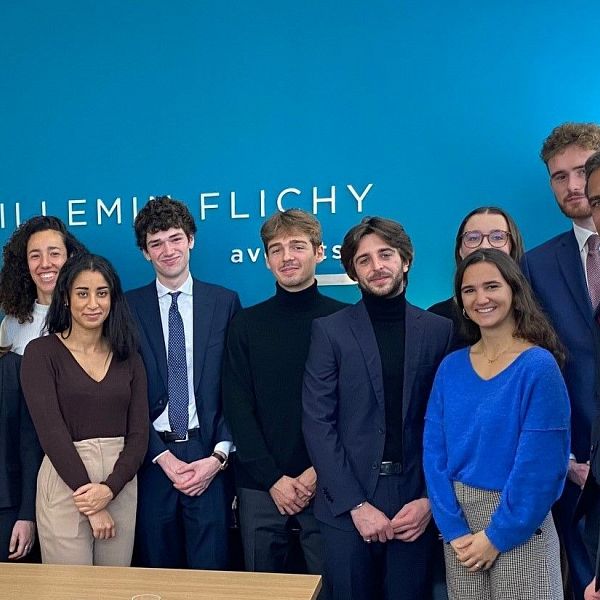
14/11/2022
GF PARTENAIRE DU MASTER 2, DROIT DES AFFAIRES 214 DE DAUPHINE !
Le cabinet a eu le plaisir de recevoir ce lundi 14 novembre, autour d’un petit-déjeuner, des étudiants de la Promotion 2022-2023 du Master 214.
L’occasion pour Guillemin Flichy de présenter aux étudiants les valeurs du cabinet et de partager notre savoir-faire.
Cette rencontre s’est poursuivie par des échanges riches et constructifs entre les associés, les collaborateurs et les étudiants du M214.

08/11/2022
Cancellation of the trademark “Travis Scott” filed in bad faith before the EUIPO
Cancellation of the trademark “Travis Scott” filed in bad faith before the EUIPO
The American rapper's company obtained the invalidity of the EU trademark "Travis Scott" filed in 2020 by a Chinese company, designating clothes in Class 25.
After recalling that there is no precise legal definition of the term “bad faith”, the EUIPO Cancellation Division noted that the evidence provided by the applicant attests to the artist's numerous international successes in both the music and fashion industries, including collaborations with famous designers such as Dior and Nike and the marketing of his own clothing range.
It is clear from the foregoing and from the goods marketed under the trademark “Travis Scott” that the trademark owner sought to associate its goods with the rapper (e.g. reproduction of his songs’ lyrics and the logo of his music label), which cannot be described as a mere coincidence.
The dishonest intention to take advantage of the artist's reputation is therefore characterised and fell below the standards of honest and acceptable behaviour.
This intention is all the more apparent as the Chinese company offers for sale items linked to other American rappers' names.
Finally, this decision is reminiscent of the cancellation of the trademark "NEYMAR" on the same grounds, which was confirmed by the General Court in 2019.
#invalidity #trademark #badfaith

02/11/2022
Duty of vigilance: the Paris Judicial Court uses amici curiae
On October 27, the summary proceedings panel of the Paris District Court (Tribunal judiciaire de Paris) heard three academics intervening as amici curiae, to inform the Court on the concept of “duty of vigilance” as set forth by law of March 23, 2017.
This hearing was part of the action initiated by the French NGO Les Amis de la Terre against TotalEnergies, concerning its oil project in Uganda. This action has already been the source of a major litigation, particularly concerning the competency of the Court to hear actions relating to such duty of vigilance.
Amicus curiae before French courts are rare, although not unheard of. It is particularly relevant in this case, given the uncertainties that remain regarding the scope and reach of such duty for companies to prevent the risks of their activities in terms of human rights, fundamental freedoms, the environment, etc.

19/10/2022
Exchange of donor files between non-profit organisations: a regulated practice
Circulating contact files between non-profit organisations allows for a broadening of the scope of potential donors. The CNIL reminds everyone wishing to resort to this practice of the rules to be respected, both for the organization transmitting the file as for the one on the receiving end.
- Obligations incumbent on the organisation transmitting the file
At the time of collecting the data, it is mandatory for the collecting body to inform the persons concerned of
- the use of the collected data for charity prospection purposes and their possible transmission to other organisations for the same purpose
- their right to object to the data collection, simply and immediately. The CNIL proposes using a checkbox through which the data subject can indicate their opposition.
- Obligations incumbent on the organisation receiving the file
The organisation receiving the donor file becomes responsible for processing the data. It must provide the data subjects with the information referred to in Article 14 of the RGPD and in particular with the source of the file.
--
These rules only apply when the purpose of the file transfer is charity prospection. If the recipient of the files plans on carrying out commercial prospecting, the obligations towards the data subjects are reinforced.
To learn more, click here

11/10/2022
Digital Services Act (DSA): Final approval given by the Council
On October 4, 2022, the Council of the EU definitively approved the legislation on digital services. This follows the approval, last July, of the other part of the legislative package on digital services: the Digital Markets Act (DMA) which will be published in the Official Journal of the European Union on October 13, 2022.
This legislative act, which aims in particular to tackle illegal content and promote transparency online, will start to apply in 2024 for many digital services providers. However, by way of exception, the economic agents which will be designated as belonging to the category of “very large online platforms” and “very large online search engines” will only have 4 months, from the date of their designation, to comply with the DSA.
#DigitalServicesAct #digitalservice #protection

04/10/2022
Economic sanctions as a tool to eradicate global corruption
Among the various sanctions-related announcements the European Commission President Ursula von der Leyen made during her 2022 State of the Union Address, she indicated that the EU would add crimes of corruption in its Global Human Rights Sanctions Regime.
In that respect, EU ought to revise the latter to include corruption as a basis for imposing sanctions, aligning its regime with US, UK and Canada Magnitsky-type laws.
However, using sanctions as a tool to fight corruption raises numerous questions, most notably the definition of the improper conducts that will be covered by the Global Human Rights Sanctions Regime. In a global perspective, it is possible that the United Nations Convention Against Corruption be used as a reference.
#economicsanctions #corruption #compliance #StateoftheUnion #Magnitsky

20/09/2022
Dismissal of an employee for moral harassment: no serious misconduct if the employee’s practices were known and tolerated by the management
An employee, a manager, had been dismissed for serious misconduct due to moral harassment committed against one of the employees of his team.
On July 12, 2022, the Court of Cassation confirmed a decision of the Court of Appeal considering this dismissal unfounded.
Such a decision may astonish since a dismissal due to moral harassment is in principle justified.
The key takeaway of this decision is that the Court of Cassation was sensitive to the fact that:
- The employer was aware of the harassment committed by the manager and failed to condemn it
- Yet worse, the manager had acted in conjunction with his superior and the company's human resources department.
Therefore, the employer was subsequently ill-founded to dismiss the employee on the grounds of moral harassment.
This decision calls for particular vigilance regarding the management of an employee accused of moral harassment and stresses the importance of resorting to sanctions as soon as aware of the facts.
The Court of Cassation’s judgment can be accessed here.

30/08/2022
STAGE ÉLÈVE-AVOCAT / DROIT SOCIAL
Présentation de l'entreprise
Guillemin Flichy fournit aux entreprises une prestation juridique à forte valeur ajoutée sur tous leurs projets d’investissements et d’innovation, leurs dispositifs de compliance, ainsi que dans le cadre de leurs contentieux.
Profil recherché
Vous êtes élève avocat et/ou titulaire d’un Master 2 spécialisé en droit social, idéalement complété d'une double formation (LLM, IEP ou école de commerce). Une excellente pratique de la langue anglaise est indispensable. Capable d'une rédaction rigoureuse, concise et argumentée, vous serez également apprécié(e) pour votre culture juridique de haut niveau, votre pragmatisme et votre enthousiasme à l'idée d'effectuer un stage au sein d’une structure dynamique et entrepreneuriale.
Descriptif du poste
Vous interviendrez sur des dossiers de conseil et de contentieux pour une clientèle institutionnelle de premier plan, sur des problématiques juridiques variées, en lien avec les autres équipes du cabinet (IP/IT, commercial, public et pénal).
Candidature à envoyer soit à l'adresse recrutement@guilleminflichy.com, soit directement sur notre site internet

21/06/2022
The right to an economic warning is reserved to the Social and Economic Committee representing the employees at company level
When the SEC is aware of facts that are likely to have a worrying effect on the economic situation of the company, it can ask the employer to provide explanations. This right, provided for in Article L. 2312-63 of the French Labor Code, is known as the "economic warning right".
Under French law, when a company has several establishments, each one can have its separate SEC. All the establishments’ SECs are then represented in a Central SEC.
The principle is that an Establishment SEC has the same prerogatives as the “regular” SEC within the limits of the powers of the head of the establishment.
By a decision of June 15th 2022, the French Supreme Court confirmed its case law according to which an Establishment SEC cannot proceed to an economic warning, including in a context where :
- The Central SEC had not implemented its economic warning right;
- The contemplated economic operation was the closure of the establishment.
In other words, since the right of economic warning concerns the company’s economic situation, the Central Works Council - acting at company level - is the sole competent body to implement this right.
The judgment can be found in full on the Cour de Cassation website.

08/06/2022
Russia's war on Ukraine: EU adopts sixth package of sanctions against Russia and Belarus
The European Union has adopted, on June 3rd, 2022, its sixth package of restrictive measures against Russia and Belarus. The latter contains the following elements:
- A complete import ban on an all Russian seaborne crude oil and petroleum products;
- After a wind down period of 6 months, a prohibition for EU operators from insuring and financing the transport, in particular through maritime routes, of Russian oil to third countries;
- A removal of three new Russian banks from the SWIFT system (including the country’s biggest one Sberbank);
- A broadcasting suspension for three Russian State outlets;
- The prohibition of the provision of certain business-relevant services – directly or indirectly – such as accounting, tax or business and management consulting services, and public relations services to the Russian government, as well as to Russian entities;
- New restrictions regarding the export of chemicals that could be used in the process of manufacture of chemical weapons.
More information on the sixth package of sanctions : https://media-exp2.licdn.com/dms/document/C4E1FAQHVDmC8F-snww/feedshare-document-pdf-analyzed/0/1654434543608?e=1655337600&v=beta&t=YyBbHFmhT4rOXzsqU-Pwawzkcg5RdmD_CLmshzAnofY

24/05/2022
The Court of Cassation confirms the Macron scales of indemnification
In a judgment of 11 May 2022, the French Supreme court rules that the Macron scales cannot be set aside by the French courts.
The executive orders of 22 September 2017, known as the "Macron" orders, introduced a fixed compensation scale for the damage suffered by an employee in the event of dismissal without real and serious cause. This compensation depends on the employee's seniority and remuneration, according to a scale set out in Article L. 1235-3 of the Labour Code.
This "scale" had given rise to much criticism, as it seemed to contradict the principle of full compensation of the damage suffered by the employee, which is not necessarily a function of the employee's seniority in the company.
Several employees had invoked the non-conformity of the scales with international standards to challenge these scales and obtain a higher compensation. In this ruling, the French Supreme Court confirms that the Macron scales allow for an "adequate" compensation of the employee within the meaning of article 10 of the ILO (International Labour Organisation) Convention No. 158.
According to the Court, judges cannot disregard the Macron scales and proceed to an assessment based solely on the circumstances of the case (known as an in concreto assessment) of the damage suffered by the employee. They are bound by the damages set out in the scale.

17/05/2022
COLLABORATEUR(TRICE) IP/IT
Poste à pourvoir à compter de Septembre 2022
Vous êtes titulaire d’un Master 2 spécialisé en IP/IT, complété d'une double formation (LLM, IEP ou école de commerce).
Vous justifiez d'une expérience significative en cabinet.
Une excellente pratique de la langue anglaise est indispensable.
Capable d'une rédaction rigoureuse, concise et argumentée, vous serez également apprécié(e) pour votre culture juridique de haut niveau, votre pragmatisme et votre enthousiasme à l'idée d’intégrer d’une structure dynamique et entrepreneuriale.
Descriptif du poste
Vous interviendrez sur des dossiers de conseil et de contentieux pour une clientèle institutionnelle de premier plan, sur des problématiques juridiques variées de droit de la propriété intellectuelle (brevets, marques, dessins et modèles, droit d’auteur, droits de la personnalité) et de droit des nouvelles technologies (logiciels, bases de données, données personnelles), en lien avec les autres équipes du cabinet (éthique & compliance, social, osbl).
Vos missions principales :
- recherches et analyses juridiques approfondies ;
- rédactions d’actes (mémorandums, contrats, écritures judiciaires) ;
- préparation des dossiers et suivi des clients ;
- audiences de plaidoiries.
La rémunération sera en fonction du profil, des compétences et de l’expérience du candidat.
Candidature à envoyer à l’adresse mail suivante : recrutement@guilleminflichy.com

13/05/2022
Update of the commercial tax exemption threshold for NPOs
A non-profit organization may carry out ancillary profit-making activities while benefiting from an exemption from commercial taxes (IS, CET, VAT), provided that it does not exceed a certain amount of turnover, the threshold of which is subject to annual indexation.
This threshold has been raised to €73,518 and is assessed as follows :
- for corporate income tax: for fiscal years ending on or after December 31, 2021;
- for VAT: for incomes received as of January 1, 2022 or if the turnover in 2021 does not exceed the exemption;
- for CET: for the year 2022.
Reminders on the mechanism of the exemption:
- the benefit of the exemption is reserved for organizations whose management is disinterested and whose non-profit activities remain significantly preponderant;
- the threshold is determined according to the operating revenues received for profit-making activities;
- the benefit of the exemption is not subordinated to the existence of an accounting and fiscal sectorization of the profit-making activities;
- when the conditions of the exemption are met, it is impossible for the organization concerned to renounce it.
Reference : BOI-IS-CHAMP-10-50-20-20

03/05/2022
Clarification of the scope of the criminal liability of the acquiring company
By its April 13, 2022 caselaw (Cass. crim., Apr. 13, 2022, n° 21-80.653), the Criminal Division of the Cour de Cassation clarified the regime of the transfer of criminal liability to the absorbing company in the event of a merger-absorption, which had previously been recognized by its caselaw reversal of November 25, 2020 (Cass. crim., Nov. 25, 2020, n° 18-86.955).
If a merger-absorption transaction does not fall within the conditions set by this reversal and allowing such a transfer (merger (i) after November 25, 2020 and (ii) falling within the scope of Directive 78/855/EEC), the criminal liability of the absorbing company for acts committed by the absorbed company may still be retained in case of fraud.
The judges therefore have to rule on the existence of such fraud, by requesting additional information if necessary.
In this case, the Cour de Cassation has overturned the appeal decision insofar as it dismissed the criminal liability of the absorbing company for receiving stolen company assets on the grounds that the merger had taken place in December 2005, although without having sought any possible fraud.

26/04/2022
Digital Services Act: a provisional agreement was reached by the Council and the European Parliament
Almost a month after the provisional agreement found by the Council and the European Parliament on the Digital Market Act (DMA), they also reached a provisional agreement on April 23, 2022 on the Digital Services Act (DSA), second flagship piece of this EU legislation which is meant to set the standards for a safe digital environment.
This act, which applies to all online intermediaries providing services across the European Union, mainly aims at tackling the spread of illegal content online and ensuring a better protection of the fundamental rights of their users.
It must now be validated on a technical point of view and formally approved by both institutions.

20/04/2022
Representative time-off : the procedure for disputing representative time-off has been simplified
In the event of refusal to justify the use of delegation hours, the employer may directly submit a request for reimbursement to the employment tribunal.
The use of delegation hours by an employee representative is presumed to be in line with the purpose of his mandate. However, in order to avoid possible abuses, the employer may ask the employee representative for details of the activities carried out during these hours.
- The first was to obtain the requested justifications,
- Then, a second one to request the reimbursement of the disputed representative time-off hours.
The Court of Cassation has reversed the case law in a decision date February 16, 2022 where the staff representative had simply sent the delegation vouchers to his employer, without any further details. Such a reply, which does not allow the employer to control the use of representative time-off, must be analyzed as a refusal to reply.
In the event of a refusal to answer, the employer is entitled to demand the reimbursement of the representative time-off, without first having to request by judicial means the indication of the activities for which they had been used.
The procedure for contesting the use of delegation hours is thus simplified.
A judgment to be found in full on the website site of the Court of Cassation.

12/04/2022
French organizations receiving donations: do not forget to file a declaration !
Recently introduced by the law n°2021-1109 of August 24, 2021 reinforcing the respect of the Republic principles, the declaration of the amount of donations received entitling to tax reduction as well as the number of tax receipts issued during a fiscal year must be carried out this year.
Which organizations are concerned? What must be declared? Where to fill in the declaration? And on what date?
Read our practical sheet to find out how this new obligation works.
#NPO #patronage #donation #taxreceipts

08/04/2022
EU adopts fifth round of sanctions against Russia
On April 8, 2022, the European Council decided to impose a fifth package of economic and individual sanctions against Russia an Belarus. The package comprises:
• A prohibition to purchase, import or transfer coal and other solid fossil fuels into the EU if they originate in Russia or are exported from Russia
• A prohibition to provide access to EU ports to vessels registered under the flag of Russia
• A ban on any Russian or Belarusian road transport operators preventing them from transporting goods by road within the EU, including in transit
• Export bans, targeting jet fuel and other goods ( quantum computers and advanced semiconductors, high-end electronics, software, sensitive machinery and transportation equipment, etc.)
• Import bans on products such as wood, cement, fertilisers, seafood and liquor
• Targeted economic measures intended to strengthen existing measures, such as a general EU ban on participation of Russian companies in public procurement in member states, the exclusion of all financial support to Russian public bodies
• Further listings of individuals (companies whose products or technology have played a role in the invasion, key oligarchs, family members of already sanctioned individuals, etc.)
#sanctions #EU #compliance #assetsfreeze

05/04/2022
Entry into force of the law of March 21, 2022 aimed at improving the protection of whistleblowers
On March 22, 2022, Law No. 2022-401 of March 21, 2022 aimed at improving the protection of whistleblowers came into force, transposing the EU Directive (EU) No. 2019/1937 of October 23, 2019 on the protection of persons who report violations of Union law, and modifying the general whistleblower protection system introduced by the Sapin 2 law.
The law adopts the following main changes:
• A broader definition of the whistleblower. The whistleblower must now act “without direct financial consideration” (instead of “disinterestedly”). The facts disclosed will no longer need to be “serious and manifest,” while “attempts to conceal” a crime or a misdemeanor may be the subject of a whistleblowing. Finally, the need for the whistleblower to have “personal” knowledge of the facts he is reporting is removed within the “professional context.”
• A new status protecting “facilitators” (trade unions, NGOs, close relatives, etc.) who are in contact with the whistleblower.
• A simplification of the reporting procedures allowing the whistleblower to choose between internal reporting and external reporting to the competent authority, to the French ombudsman (Défenseur des droits), to the courts or to a European body.
• A reinforcement of the whistleblower's protection measures, by completing the list of forbidden reprisals (for instance, intimidation, damage to his reputation on social networks, etc.) or by extending the whistleblower's non-liability (for example, criminally, for having withdrawn confidential documents containing the information he had knowledge of to launch his whistleblowing, in a lawful manner).

29/03/2022
Personal data: new censure of the French Conseil constitutionnel based on invasion of privacy
By way of derogation, section III of article L.34-1 of the French post and electronic communications Code authorized electronic communications operators to process for one year, in particular for the purposes of investigating, finding and prosecuting criminal offences, some connection data enabling the identification of users of electronic communications services and their addressees, as well as the characteristics of such communications and the tracking of connection terminals.
However, the French Conseil constitutionnel in a decision dated February 25, 2022 ruled that preventing disruptions of public order and prosecuting offenders is no justification for processing data that is so harmful to privacy rights, with no distinction between users and regardless of the nature and degree of gravity of the infringement.
This provision is therefore condemned based on its disproportionate interference with privacy rights.

28/03/2022
INTA 2022
We are delighted to announce that Guillemin Flichy, represented by our Partner Alexis Guillemin, will be attending the International Trademark Association (INTA) 2022 Annual Meeting Live+ in Washington D.C. from April 30 to May 4, 2022.
We look forward to meeting you all again in person at this annual huge event and hope to see many new faces!
For scheduling a meeting, feel free to contact : ag@guilleminflichy.com
See you in DC!
#INTA2022 #intellectualproperty#trademarksbrands#networking

22/03/2022
Gross misconduct: discovery of the facts during the employee's sick leave
According to established case law, the employer must initiate the disciplinary procedure within a limited period of time following the discovery of the gross misconduct.
Failure to do so may result in the misconduct losing its status of gross misconduct. Indeed, if the misconduct is gross, then it is incompatible with the employee remaining on the company's payroll.
In a decision dated March 9, 2022, the French Supreme Court points out that if the employee's employment contract has already been suspended due to sick leave, then a lapse of time between the discovery of the facts and the notification of the dismissal is not sufficient to call into question the gross nature of the misconduct.
The full text of the decision to be found here.

15/03/2022
Publication by AFA of a guide on good practices relating to the governance and fundraising process for public utility associations and foundations
On January 31, 2022, the French Anti-Corruption Agency (“AFA”) published a guide giving good practices (French version only) to be implemented in order to control the risks of breach of probity for associations and foundations recognized as being of public utility (“ARUP and FRUP”).
This guide aims to raise awareness among the managers of ARUP and FRUP on the existing dangers and to help them design or update their anti-corruption program. By means of examples of risky situations and scenarios, it presents solutions and suggests good practices, based on the following two themes:
- Governance (sheet n°1);
- The process of prospecting, collecting and settling donations (sheet n°2).
Several appendices recall the general principles of criminal liability for non-profit organizations and detail the existing offences, such as corruption, favouritism or illegal conflict of interest.
This guide is intended for all non-profit organizations, although only ARUP and FRUP are subject to AFA control.
#AFA #ARUP #FRUP #donations #probity
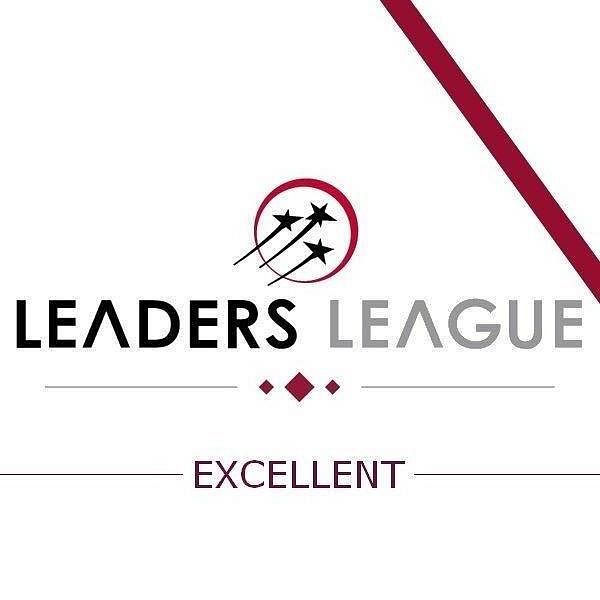
09/03/2022
Ranking Leaders League 2022 | IP-IT
Our IP-IT team has once again greatly distinguished!
"Excellent" for "Industrial Property - Trademarks, Litigation" | “Highly Recommended" for "Innovation, Technologies & Telecoms - Personal Data Law" & "Renowned Practice" in the category "Innovation, Technologies & Telecoms - IT, Software & Digital Projects".
Thanks to all our clients for their unwavering trust.

07/03/2022
Sanctions Against Russia: an Update on the Measures in Force
The Guillemin Flichy team provides you with an overview of the sanctions programs decided by the European Union and the United States against Russia. Freezing of assets, export controls, financing, movement of persons: is my business affected? What consequences for my contracts? Should I stop paying my suppliers? What are the sanctions incurred?
Our team is fully mobilized.
Public concerned: CFOs, GCs, CCOs
#sanctions #Russia #Europeanunion #USA #lawyer #embargo

01/03/2022
Free riding: no need to seek an economic profit
The behavior of a non-profit organization shall be punishable on the basis of free-riding, even though there is no economic interest involved.
In this case, an association has misappropriated another association’s information campaign to serve its own cause.
The association requested the dismissal of claims based on article 1240 of the French Civil Code, on the ground that free-riding should be excluded in the absence of economic purpose.
In a decision rendered on February 16, 2022 and published in the Bulletin, the French Supreme Court points out that such an action can be brought "regardless of the legal status or the activity of the parties, as long as the free-rider places itself in the wake of the victim, relying on its efforts, know-how, repute or investments”.

15/02/2022
Variable compensation : bonus targets must be communicated in French
To be enforceable against the employee, the targets must be communicated in French. If they are not, the employee is entitled to demand payment of his or her full variable compensation.
However, the question arose as to whether this solution would also apply to an employee who usually works in English.
In a decision dated February 2nd, 2022, the French Supreme Court (“Cour de cassation”) ruled that the objectives cannot be enforced against the employee if he or she did not "have access, in any form whatsoever, to a document in French setting out the targets".
This decision may seem surprising in a context where:
• The employee's working language with his management was English;
• The employee and his management discussed the targets by email in English;
• The employee personally completed his evaluation in English on the basis of the targets set.
We can therefore only reiterate our recommendation for vigilance on this point.

08/02/2022
Covid-19 crisis : new rules for meetings of the administration bodies of non-profit organizations
Since the beginning of the health crisis, some measures have been taken in order to ensure and facilitate decision-making of legal persons.
The latest one, established by Article 13 of the Law n°2022-46 of January 22, 2022 reinforcing the tools for managing the health crisis, is in force from January 23 to July 31, 2022, to the administrative, supervisory or management bodies. For non-profit organizations, it concerns the board of directors or the body in lieu thereof.
In short, whatever the purpose of the decision, it may be taken by audio or video conference or written consultation under the following conditions:
• Members participating remotely are deemed to be present if the means of connection enable their identification and guarantee their effective participation;
• Written consultation is authorized if it ensures the identification of the participant and the collegiate nature of the deliberations.
The government still has to extend these rules to the meetings of the general assemblies by ordinance. Publication is expected by April 23, 2022 at the latest.

01/02/2022
Paris District Court has sole jurisdiction over matters regarding parent companies’ duty of care
French judges and French legislators have recently recognized the jurisdiction of the Paris District Court regarding disputes related to the application of Law No. 2017-399 of March 27, 2017 on parent companies’ duty of care.
• In a case rendered on December 15, 2021 published in its official Bulletin, the French Court of Cassation put an end to the dispute regarding the Court - Commercial or District – having jurisdiction to enjoin a parent company to effectively implement a vigilance plan.
Court of Cassation’s Commercial Chamber struck down a previous decision from the Versailles Court of Appeals, which had ruled that the Commercial Court had jurisdiction. It also held that the vigilance plan, although directly related to the management of the company, was not a “commercial act.” Consequently, plaintiffs who are not considered as “businessmen” have an option between seizing the District Court rather than the Commercial one.
• The effects of such decision were however short-lived. Indeed, a few days later, the legislator definitively closed the debate by assigning all litigation relating to the duty of care to the Paris District Court by creating article L. 211-21 of the Code of Judicial Organization.

31/01/2022
ÉLÈVE-AVOCAT / DROIT DES AFFAIRES - STAGE 6 MOIS
Juillet - Décembre 2022
Présentation de l'entreprise
Guillemin Flichy fournit aux entreprises une prestation juridique à forte valeur ajoutée sur tous leurs projets d’investissements et d’innovation, leurs dispositifs de compliance, ainsi que dans le cadre de leurs contentieux.
Profil recherché
Vous êtes élève avocat et/ou titulaire d’un Master 2 spécialisé en droit des affaires, idéalement complété d'une double formation (LLM, IEP ou école de commerce). Une excellente pratique de la langue anglaise est indispensable. Capable d'une rédaction rigoureuse, concise et argumentée, vous serez également apprécié(e) pour votre culture juridique de haut niveau, votre pragmatisme et votre enthousiasme à l'idée d'effectuer un stage au sein d’une structure dynamique et entrepreneuriale.
Descriptif du poste
Vous interviendrez sur des dossiers de conseil et de contentieux pour une clientèle institutionnelle de premier plan, sur des problématiques juridiques variées, en lien avec les autres équipes du cabinet (IP/IT, commercial, public et pénal).
Candidature à envoyer soit à l'adresse recrutement@guilleminflichy.com, soit directement sur notre site internet

25/01/2022
Expected clarifications regarding the assignment of the right to the patent held by the employer on a mission invention
In a second decision of January 5, 2022, the French Supreme Court proceeds with the clarifications made necessary by its previous decision of January 31, 2018 in the same case.
Indeed, it confirms that the patent right, held by an employer on a patentable (and not yet patented) mission invention made by one of its inventor employee, can be freely assigned to a third party.
The latter, as legitimate successor of the employer first holder of the patent right, can oppose such a regime to its inventor, to defeat his patent ownership claims.

18/01/2022
“Rixain” Law : the new obligations regarding gender equality in management bodies
The so-called "Rixain" law of December 24, 2021 intensifies the obligations of large corporations in terms of gender equality. These new obligations, which are applicable to corporations with more than 1,000 employees, can be broken down as follows:
• From March 1, 2022, companies will have to publish each year any gaps in the representation of women and men among senior managers and members of management bodies;
• From March 1, 2023, these gaps will be published on the website of the Ministry of Labour;
• By March 1, 2026, these gaps in representation must be less than 30%;
• On March 1, 2029, companies will be given a two-year period to reach 40%.
Eventually, as of March 1, 2031, companies that do not comply with their obligation may be sanctioned by a financial penalty of up to 1% of the annual payroll.
Decrees have yet to be published, notably on the methods of publishing data and setting of the financial penalty.

11/01/2022
A new obligation for associations and foundations applying for a subsidy or an agreement: the “Republican Commitment Contract”
Introduced by the Law n°2021-1109 of August 24, 2021 reinforcing the respect of the principles of the Republic (“Loi confortant le respect des principes de la République”), the “Republican Commitment Contract” (“Contrat d’engagement républicain”) aims to ensure the use of public resources by associations and foundations in accordance with the French Republican principles. Its content has been unveiled by the Decree n°2021-1947 of December 31, 2021.
Scope: since January 3, 2022, an association or a foundation requesting a public subsidy or an agreement from a public entity must suscribe a Contrat d’engagement républicain as in the annex to the Decree. The Contract binds managers, employees, members and volunteers.
Content: the Contrat d’engagement républicain contains 7 commitments for the concerned organizations: respect for the French Republic Laws, freedom of conscience, freedom of the members of the association, equality and non-dscrimination, fraternity and prevention of violence, respect for the dignity of the human person and respect for the symbols of the French Republic.
Publicity: members of the organization must be informed of the existence of the Contract by a publication in the buildings or on the website if it has one.
Sanctions: the Decree specifies that in the event of a breach of the Contrat d’engagement républicain, the organization faces a cancellation of the subsidy in proportion to the period remaining at the date of the breach.
In practice : the Cerfa form n°12156*06 for subisidies applications has been modified in order to take into account this new obligation. Organizations applying for an agreement will have to comply with this new obligation with the administrative authority in charge and according to the formalism defined thereof.

06/01/2022
Happy New Year 2022 !
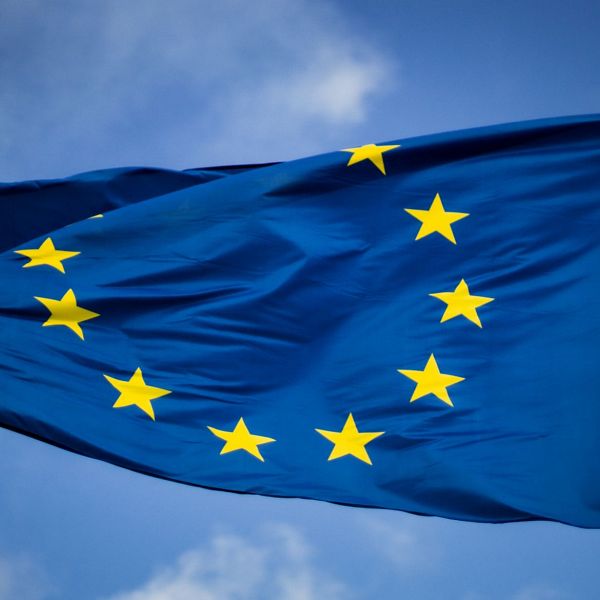
05/01/2022
U.S. secondary sanctions and the European Blocking Statute: the Court of Justice of the European Union takes a stand for the first time
On December 21, 2021, the Court of Justice of the European Union (ECJ) issued a long-awaited ruling on the application of Council Regulation (EC) No 2271/96 protecting against the effects of specific US sanctions programs against Iran, Cuba and Syria (“the Blocking Statute”).
The ECJ received several requests for preliminary ruling from a German court on the interpretation of the first paragraph of Article 5 of the Blocking Statute forbidding an European person to comply with US sanctions programs.
The ECJ Grand Chamber has provided the following answers:
• Article 5 of the Blocking Regulation forbids European persons from complying with economic sanctions programs listed, even in the absence of an order requiring compliance with such programs issued by a US administrative or a judicial authority
• Article 5 of the Regulation does not prevent an European entity from terminating the contract concluded with a person listed on the US Specially Designated Nationals and Blocked Persons (SDN list). However, in the context of civil proceedings concerning the alleged breach of the prohibition laid down by the Blocking Statute, the European entity must show that such termination did not seek to comply with the US sanctions programs referred to in the Statute.
• Termination of a contract in violation of a Blocking Statute may be sanctioned by the annulment of the termination, provided that such sanction does not result in disproportionate effects for the European entity. The European judge should weigh the objectives of the Blocking Statute against the economic risks that the entity could face if the contract with a blocked entity was to be maintained.
For further information on this ruling, do not hesitate to reach our Sanctions & Export Controls team.
#compliance #sanctions #OFAC #ECJ #Lawyer #France #Blockingstatute #ThibaultGuillemin #ThomasChanzy

17/12/2021
The CNIL continues to intensify its controls regarding compliance with the regulations on cookies
In 2021, the “Commission Nationale de l’Informatique et des Libertés” (CNIL), the French Data Protection Authority, had announced that it would focus its controls on three priority areas, including compliance with the regulations on cookies.
As expected, the CNIL announced on December 14 that it had issued a formal notice to some thirty private and public organizations, from various sectors such as public education, higher education, clothing, transportation, large retailers and distance selling, reproaching them to perpetuate bad practices about cookies, especially as regards the methods of obtaining the Internet user's consent for their deposit.
These controls are in addition to the approximately sixty organizations that have already been noticed since May 2021.
More information here (French only).

30/11/2021
Publication by AFA of its Practical Guide on the prevention of conflicts of interest in companies
On November 18, the French Anti-Corruption Agency (“AFA”) published the final version of its Practical Guide on the prevention of conflicts of interest in companies, which had previously been submitted for public consultation.
This Guide, aimed at companies and industrial and commercial public entities, their managers and compliance professionals, is intended to help the latter identify risk situations and choose the most appropriate measures in order to prevent and manage them.
The Guide, which proposes a definition of conflicts of interest ("The existence of a personal interest whose interference with the function performed within an entity is such as to influence, or appear to influence, the objective and independent performance of the function on behalf of such entity") is illustrated by various good practices observed by AFA during its missions.

23/11/2021
Watch out for the purpose of surveillance devices!
In a decision of November 10, 2021, the French Supreme Court reminds us that it is forbidden for the employer to divert technical tools from their intended purpose in order to monitor employees’ activity.
In order to prove the existence of serious misconduct, the employer filed a CCTV extract before the Employment Tribunal and later before the Court of Appeal.
The employees had been informed of this system and of the fact that it was intended to ensure the security of goods and persons.
This information was deemed insufficient.
For the French Supreme Court, it was up to the employer to inform its employees that the CCTV also enabled him to collect and use personal information.
Let’s guess that this solution will soon be transposed to home office IT tools.
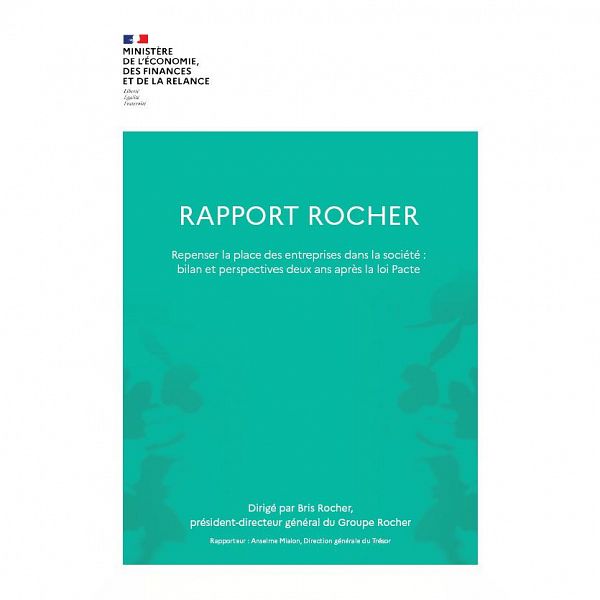
16/11/2021
Publication of the “Rocher Report” : concrete proposals for committed companies !
Commissioned by the French Minister of the Economy, Finance and Reflation, Bruno Le Maire and the Secretary of State in charge of the Social, Solidarity and Responsible Economy, the Rocher Report aims to assess the results of the Law n°2019-486 of May 22, 2019 on Action Plan for Business Growth and Transformation (“Loi Pacte”) while making a prospective analysis.
The Report sets out clearly the reasons of obstacles impeding the use by companies of the Loi Pacte : while some have taken the plunge by adopting a raison d’être, and even, for a few, the label “company with a mission” (“société à mission”), many do not perceive the benefits offered by these provisions, but do identify the constraints.
14 proposals are developed following three main lines of action:
• Spreading the word: several leverages can be used in order to ensure the widest possible implementation of the new measures resulting from the Loi Pacte;
• Giving credibility: the alleged risk of “purpose washing” requires to give credibility to the raison d’être and the société à mission provisions;
• Looking to the future: removing the barriers of the development of the sustainability fund (“fonds de pérennité”), enshrining the obligation to take into consideration social and environmental issues at the European level and encouraging all European companies to adopt a raison d’être and move towards an integrated accountancy.
Some statistics :
• Out of the 120 companies of the SBF 120, 1 is a société à mission, 9 have a raison d’être and 5 have a preamble to their bylaws (55 with an extrastatutory raison d’être);
• As of the date of the Report, 206 sociétés à mission have been created in less than two years, 70% of them by companies with less than 50 employees.

09/11/2021
U.S. Department of the Treasury Releases Sanctions Review
The U.S. Department of the Treasury has recently published its 2021 Sanctions Review, a Report focusing on the challenges facing U.S. policy on economic sanctions.
While the Report reiterates the success of such sanctions in defending the national security, it emphasizes the need to evolve the sanctions due to new challenges (notably the distrust of foreign economic actors towards the US dollar or the development of cryptocurrencies).
The Report lists five recommendations:
• Adopting a structured policy framework that links sanctions to a clear policy objective;
• Incorporating multilateral coordination with US allies, where possible, in order to reinforce sanctions’ impact;
• Calibrating sanctions to mitigate potential unintended economic, political and humanitarian impact;
• Ensuring sanctions are easily understood, enforceable and adaptable, including greater cooperation with the private sector; and
• Investing in modernizing Treasury’s sanctions technology, workforce and infrastructure.
It will be interesting to see how these recommendations will be implemented by US authorities, especially the will to develop coordination with US allies in order to harmonize their respective sanctions.
#OFAC #economicsanctions #internationalsanctions #compliance

02/11/2021
Reversal of the French Court of Cassation’s case law: the application for registration of a trademark cannot be qualified as an act of infringement
In two decisions handed down on October 13, 2021, the French Court of Cassation ruled that, in the absence of any commencement of commercialization, the act of filing does not constitute an act of use for goods and services and does not undermine the trademark's function of guaranteeing identity of origin.
If these conditions, which are necessary to characterize an act of counterfeit, are not met, the application for registration of a trademark, as well as its registration, cannot therefore be incriminated on this basis.
The Court of Cassation thus makes a long-awaited reversal of its previous case law, in order to comply with the interpretation of the Court of Justice of the European Union.
Com. 13 oct. 2021, FS+B, n° 19-20.504

26/10/2021
The employer is not obliged to reimburse the cost of virological tests to employees
As of 15 October 2021, virological tests are no longer systematically reimbursed. The "Questions and Answers" of the Ministry of Labour now specifies that the cost of virological tests does not constitute professional expenses.
The employer will therefore not be obliged to reimburse these costs to employees who request it.
It should be noted that this solution applies to all companies, even those whose activity requires their employees to have a “COVID Pass”, either on a permanent or occasional basis.
The administration thus provides a clear answer to a question that many employers have been asking themselves since this summer.
Find here the complete list of the "Questions and Answers" of the Ministry of Labour.

19/07/2021
Compliance in M&A Transactions
Thibault Guillemin interviewed by Dalloz Formation on Compliance in M&A Transactions : a Practical Focus Both on AFA's Last Guidelines and the French Supreme Court's Last Ruling.
#lawyer #compliance #mergers #acquisitions #AFA #whitecollar #France

02/06/2021
ÉLÈVE-AVOCAT / DROIT SOCIAL
Septembre 2021
Présentation de l'entreprise
Guillemin Flichy fournit aux entreprises une prestation juridique à forte valeur ajoutée sur tous leurs projets d’investissements et d’innovation, leurs dispositifs de compliance, ainsi que dans le cadre de leurs contentieux.
Profil recherché
Vous êtes élève avocat et/ou titulaire d’un Master 2 spécialisé en droit social, idéalement complété d'une double formation (LLM, IEP ou école de commerce). Une excellente pratique de la langue anglaise est indispensable. Capable d'une rédaction rigoureuse, concise et argumentée, vous serez également apprécié(e) pour votre culture juridique de haut niveau, votre pragmatisme et votre enthousiasme à l'idée d'effectuer un stage au sein d’une structure dynamique et entrepreneuriale.
Descriptif du poste
Vous interviendrez sur des dossiers de conseil et de contentieux pour une clientèle institutionnelle de premier plan, sur des problématiques juridiques variées, en lien avec les autres équipes du cabinet (IP/IT, commercial, public et pénal).
Candidature à envoyer soit à l'adresse recrutement@guilleminflichy.com, soit directement sur notre site internet

31/05/2021
Thibault guillemin Interviewed by Florence Duprat on B Smart TV
Thibault Guillemin was last Friday the guest of Florence Duprat in the program SmartLex, broadcast by the new channel B Smart.
#compliance #SmartLex #lawyer #GuilleminFlichy
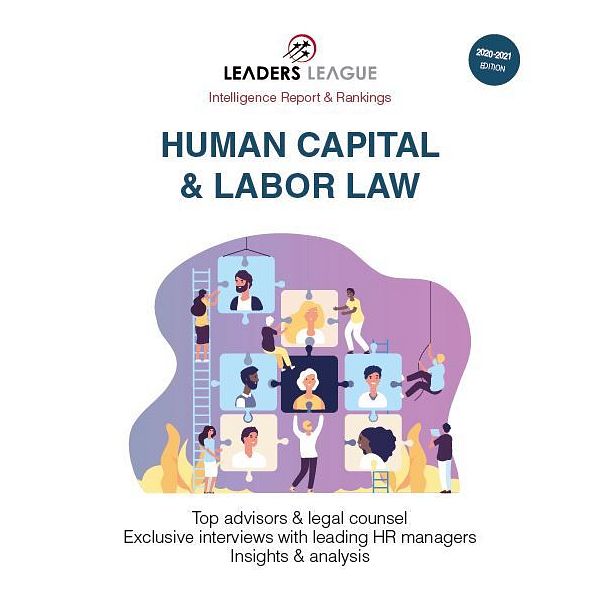
18/05/2021
Ranking Leaders League 2021 | HUMAN CAPITAL & LABOR LAW
Ranking Leaders League 2021 - Our #socialteam again greatly distinguished!
- Highly Recommended for :
- High-risk litigation and criminal Labor Law,
- Recommended for:
- Social Aspects of M&A & Workforce Audits,
- Collective Bargaining and social relation
- Mobility and Expatriation
- Collective and individual compensation
- Reorganizations, socials programs, and related litigation
Thanks to all of our clients for their unwavering trust.
#leadersleague @stephaneflichy @juliettegarcia

29/04/2021
U.S. imposes wide array of economic sanctions against Russia
On April 15, 2021, the United States imposed a broad array of economic sanctions on Russia, reacting to its interference in last year’s U.S. election, its cyber hacking, bullying Ukraine and other alleged malign actions.
US President thus broadened the sanctions regime against Russia by signing an Executive Order :
- Blocking the property of several persons operating in the technology and defense sectors of the Russian economy.
- The EO also authorizes the Department of Treasury, in consultation with the Secretary of State, to sanction Russian entities that have engage in a series of actions, on behalf of the Russian government, including transnational corruption, actions or policies that undermine foreign democratic processes or institutions.
Accordingly, the Treasury blacklisted 32 entities and individuals, tied to the Russian intelligence services, that it said had carried "acts of disinformation and interference.
In addition, Treasury’s Office of Foreign Assets Control (OFAC) is issuing a directive that generally prohibits U.S. financial institutions from taking part in the primary market for rouble-denominated Russian sovereign bonds from June 14.

22/04/2021
The Paris’ Court of Appeal upheld the sentence of the artist Jeff Koons for counterfeiting
Ruling on appeal from a judgment of November the 8, 2018, the Court of Appeal confirmed that the sculpture "Fait d'hiver" by Jeff Koons, exhibited at the end of 2014 at the Pompidou Museum in Paris during a retrospective exhibition devoted to the American artist's work, infringed copyrights held on a photograph also titled "Fait d'hiver" and exhibited in the mid-eighties as part of an advertising campaign of the Naf Naf company.
Thereby, the Court of Appeal successively rejected the arguments brought by the famous artist and his rights management company, seeking in particular to benefit from the exception of parody, whereas according to the Court, nothing allowed the public to understand the reference to the pre-existing photograph and thus sense its parodic dimension, and then to demonstrate that Koons’ freedom of artistic expression should prevail over such prior rights.
Finally, judges emphasized that since Jeff Koons is an artist of major importance on the art market, he should have spontaneously sought consent from the author of the work that he would use as his source of inspiration.
CA Paris, 5, 1, 23 février 2021, n° 19/09059

15/04/2021
Publication of the AFA annual activity report
The French Anti-Corruption Agency (AFA) has just published its 2020 annual report.
- With respect to its consulting activities, 2020 was marked by the revision of the AFA's Guidelines. AFA notably emphasizes the three pillars of the anti-corruption program:
- Commitment of senior management;
- Company’s knowledge of its risks through risk mapping;
- Deployment of a risk management’s system.
- With respect to its audit activities, AFA initiated 30 new controls in 2020: one monitoring audit, following the CJIP signed with Airbus, and 29 own-initiative audits. AFA notes:
- Increasing compliance by economic actors with their obligations, even if there is still room for improvement, especially concerning the commitment of the management body;
- Significant margins for progress remain with regard to public actors.
#AFA #Sapin2 #compliance #probity

14/04/2021
Guillemin Flichy Awarded Again
The magazine #Decideurs ranks the Guillemin Flichy team for 2021 as "Excellent" in corporate criminal law and "Highly recommended" in compliance and internal investigations: we are honored by our clients' trust. #whitecollar #compliance #ranking #lawyers

29/03/2021
Big Bang for Legal Professions
A co-founder of the "Association de la Filière des Services Juridiques et du Droit (AFSJD)", the newly born professional association prefiguring the legal services industrial sector, Thibault Guillemin has been also appointed as its co-Chair.
Creating and preparing the future of the legal services industry: French lawyers and continental law are some key-drivers of our economy!
To find out more, Décideurs Magazine has released an article advocating for the recognition of the legal services industry.

29/03/2021
Ranking Leaders League 2021 | IP-IT
Ranking Leaders League 2021 - Our IP-IT team again greatly distinguished!
"Excellent" for "Industrial Property – Trademarks and Designs " | “Highly Recommended" for "Data Protection Law" | and “Renowned practice” for “IT Law”
Thanks to all of our clients for their unwavering trust.
#leadersleague @alexisguillemin @mathildechevauchez

25/03/2021
Anti-corruption due diligence for mergers and acquisitions – AFA’s practical guide’s update
On March 12, the French Anti-Corruption Agency (AFA) published an updated version of its Practical Guide on Anti-corruption Due Diligence for Mergers And Acquisitions.
This new version takes into account the Criminal Division of the French Court of Cassation’s decision dated November 25, 2020, which ruled that, in the case of a merger-absorption, the absorbing company could be criminally sentenced to a fine or a confiscation for acts constituting an offence, committed by the absorbed company prior to the merger or absorption transaction. (Cass. Crim, November 25, 2020, n°18-86.955).
Following the revised AFA Guidelines’ spirit, the updated Practical Guide insists on the significance of the engagement of the management team in favour of merger and acquisition operations free from any fact of corruption:
- Managers have to allocate human and financial tools adapted to anti-corruption due diligence;
- Managers can entrust the direction of these diligences to an elected person, which can be the company’s compliance officer or an outside provider.
Updated version of the AFA’s Practical Guide concerning Anti-corruption Due Diligence for Mergers And Acquisitions: click here
Criminal Division of the French Court of Cassation’s decision dated 25 November 2020: click here

19/01/2021
Happy New Year!

18/01/2021
Communiqué de Presse
Guillemin Flichy coopte Mathilde Delaunay en qualité d’Associée et confirme son expertise de premier plan en droit des organismes sans but lucratif
Accompagner ses clients dans leurs projets en lien avec l’économie sociale et solidaire est l’une des expertises historiques du cabinet Guillemin Flichy, tant en conseil qu’en contentieux.
Deux ans après son arrivée chez Guillemin Flichy en qualité d’Avocat of Counsel, Mathilde Delaunay a été nommée Associée le 1er janvier 2021.
Cette association confirme l’expertise juridique et fiscale de Guillemin Flichy dans le secteur de l’économie sociale et solidaire.
Mathilde Delaunay (37 ans) est inscrite au Barreau de Paris depuis 2010. S’étant consacrée dès le début de sa carrière à l’accompagnement des structures non lucratives et au secteur de l’économie sociale et solidaire, elle a intégré Guillemin Flichy en 2018 pour y renforcer cette expertise. Elle a été rejointe en 2020 par Agathe Lux, Avocate collaboratrice.
Guillemin Flichy est un cabinet d’Avocats d’affaires créé en 2011, disposant d’une expertise de premier plan en matière de gouvernance, d’éthique et d’opérations stratégiques à forte valeur ajoutée. Il accompagne une clientèle composée de sociétés cotées, d’entreprises industrielles, d’institutions publiques, de family offices et d’organismes sans but lucratif.

07/10/2020
Health crisis : the simplification rules regarding shareholders or board meetings and shareholders or board decisions are extended
The exceptional provisions resulting from Ordinance n°2020-321 dated 25 March 2020 and from Decree n°2020-418 dated 10 April 2020 aimed at simplifying the holding of shareholders’ or managing boards’ meetings during the health crisis (which we analysed in our April 2020 presentation to which we refer you), initially scheduled to remain in force until 31 July 2020, were extended until 30 November 2020 by a Decree N° 2020-925 of 29 July 2020.
Until 30 November 2020, companies and various other groupings will therefore be entitled:
- When they are public companies, to inform shareholders of the holding of a meeting and to respond to preliminary information request from shareholders in a dematerialized way;
- To decide on an alternative manner to hold shareholders meeting, either by closed-session or through telephone or video conference when the meeting is being convened in an area where administrative measures are limiting or prohibiting public gatherings for sanitary reasons. Board of directors or any other type of governance meetings may be held through telephone or video conference in any case, even when there is no such restriction in the area;
- Consult their shareholders in writing even when their bylaws do not include a specific provision to this effect, being reminded that any contrary position of the bylaws shall be disregarded until the new deadline, provided of course a provision of the law does not preclude such written consultation;
- Facilitate the dematerialized participation, deliberations and the vote of managing board members as well as of shareholders.
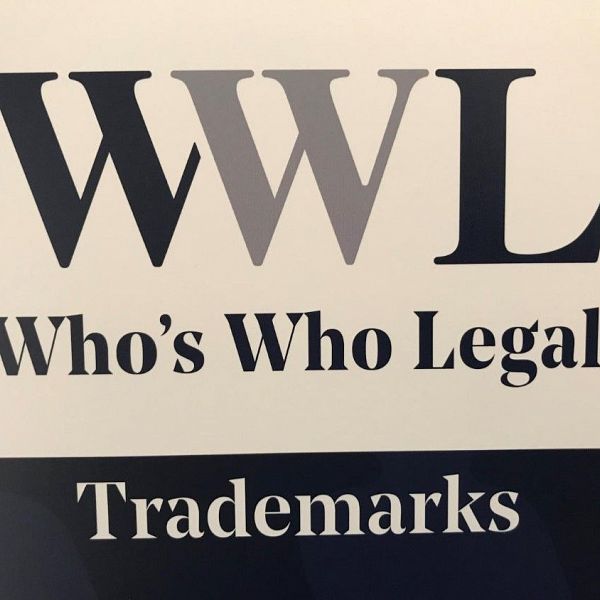
05/10/2020
Nomination
Who's Who Legal (WWL) "Trademarks 2020" -
#AlexisGuillemin has been nominated as one of the world's leading practitioners in trademarks law.
WWL identifies over 1,000 lawyers from across 77 jurisdictions for their impressive array of skills that they use to support household name clients through complex trademarks infringement litigation and prosecutions, as well as strategic portfolio developement on a global scale.
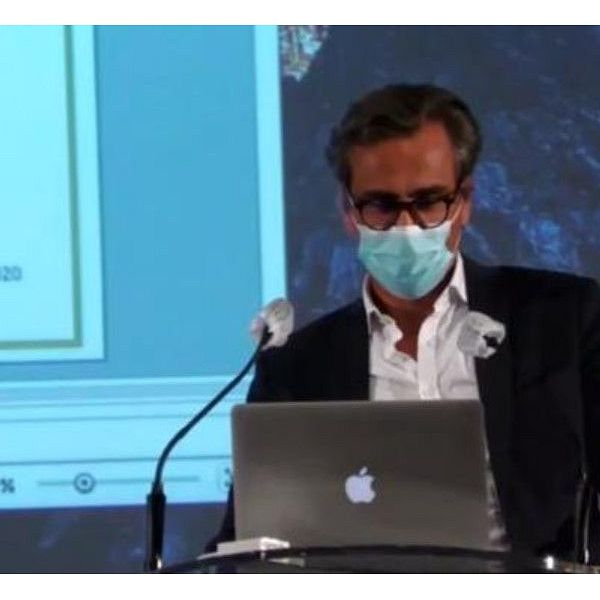
25/09/2020
Intervention Apram Alexis Guillemin
25 septembre 2020
Alexis Guillemin, associé, est intervenu à l'Apram sur le thèmme des "Usages autorisés de marque"
#guilleminflichy #apram #goingforwardtogether

25/09/2020
Une mesure de gel des avoirs prise en raison des activités de celui qui la subit ne constitue pas un cas de force majeure
Une banque iranienne avait fait l’objet d’une mesure de gel des avoirs, en application des sanctions économiques prises à l’égard des acteurs participant, directement associés ou apportant un soutien aux activités du programme nucléaire iranien.
Elle avait par ailleurs été condamnée en justice à rembourser 4.000.000 USD à deux sociétés, avec application du taux d’intérêt légal à compter du prononcé de la décision.
Or, la banque estimait que la mesure de gel des avoirs prise à son encontre constituait un cas de force majeure l’ayant empêché de payer les intérêts de retard dus à ses créanciers.
Par un arrêt du 10 juillet 2020, l’Assemblée plénière de la Cour de cassation a jugé que ne constitue pas « un cas de force majeure pour celle qui le subit, faute d’extériorité, le gel des avoirs d’une personne ou d’une entité qui est frappée par des mesures de sanctions internationales en raison de ses activités ».
L’Assemblée plénière a par ailleurs saisi la Cour de justice de l’Union européenne de questions préjudicielles afin de savoir si des mesures conservatoires ou d’exécution forcée peuvent être diligentées sur des fonds gelés.
Ass. Plen., 10 juill. 2020, n°18-18.542 et n° 18-21.814, Publié au bulletin
#sanctionsinternationales #exportcontrol #geldesavoirs #conformité

10/07/2020
Agence française anticorruption : publication du rapport d’activité 2019
Ce rapport insiste sur les actions entreprises par l’AFA en matière :
- De soutien des acteurs publics et privés dans l’appropriation des mesures anticorruption ;
- De formation et de sensibilisation à l’anticorruption ;
- De coopération interne (qu’elle soit administrative ou judiciaire) et internationale (en lien avec des homologues étrangers ou au sein d’organisations internationales) ;
- De contrôle de l’efficacité des dispositifs anticorruption. A cet égard, l’AFA a lancé 36 contrôles en 2019 (20 concernant des acteurs économiques et 16 des acteurs publics).
Plusieurs enseignements peuvent être tirés des contrôles menés en 2019 :
- La progression de l’engagement de l’instance dirigeante des acteurs économiques ;
- Les approximations de ces acteurs concernant certaines mesures à mettre en œuvre (cartographie des risques, évaluation des tiers) ;
- La faible maturité des acteurs publics en ce qui concerne la prévention et la détection des atteintes à la probité.
Rapport annuel : Lire ici

26/06/2020
ÉLÈVE-AVOCAT / DROIT SOCIAL
Janvier 2021
Présentation de l'entreprise
Guillemin Flichy fournit aux entreprises une prestation juridique à forte valeur ajoutée sur tous leurs projets d’investissements et d’innovation, leurs dispositifs de compliance, ainsi que dans le cadre de leurs contentieux.
Profil recherché
Vous êtes élève avocat et/ou titulaire d’un Master 2 spécialisé en droit social, idéalement complété d'une double formation (LLM, IEP ou école de commerce). Une excellente pratique de la langue anglaise est indispensable. Capable d'une rédaction rigoureuse, concise et argumentée, vous serez également apprécié(e) pour votre culture juridique de haut niveau, votre pragmatisme et votre enthousiasme à l'idée d'effectuer un stage au sein d’une structure dynamique et entrepreneuriale.
Descriptif du poste
Vous interviendrez sur des dossiers de conseil et de contentieux pour une clientèle institutionnelle de premier plan, sur des problématiques juridiques variées, en lien avec les autres équipes du cabinet (IP/IT, commercial, public et pénal).
Candidature à envoyer soit à l'adresse recrutement@guilleminflichy.com, soit directement sur notre site internet

26/06/2020
Lutte contre la corruption internationale : diffusion d’une circulaire de politique pénale
Le 2 juin, la garde des Sceaux a diffusé à l’ensemble des parquets une circulaire de politique pénale en matière de lutte contre la corruption internationale.
Cette circulaire a deux objectifs affirmés : (i) faire de la politique pénale un moteur de la lutte contre la corruption internationale et (ii) permettre à la France de retrouver sa souveraineté judiciaire.
Parmi les différents apports de cette circulaire :
- Le « rôle central » offert au Parquet national financier en matière de lutte contre la corruption internationale ;
- L’incitation des entreprises à s’auto-dénoncer ;
- L’importance de poursuivre, au-delà de la seule personne morale, les employés, dirigeants et tiers directement ou indirectement impliqués dans le schéma corruptif ;
- L’adaptation des modes de poursuite, en prenant en compte une éventuelle solution négociée, afin que les sanctions prononcées soient « efficaces, proportionnées et dissuasives ».
Circulaire de politique pénale en matière de lutte contre la corruption internationale (CRIM202009G3/11.03.2020)
#politiquepénale #PNF #corruption #responsabilitédesdirigeants #compliance

23/06/2020
ÉLÈVE-AVOCAT / DROIT DES AFFAIRES
À partir de Janvier 2021
Présentation de l'entreprise
Guillemin Flichy fournit aux entreprises une prestation juridique à forte valeur ajoutée sur tous leurs projets d’investissements et d’innovation, leurs dispositifs de compliance, ainsi que dans le cadre de leurs contentieux.
Profil recherché
Vous êtes élève avocat et/ou titulaire d’un Master 2 spécialisé en droit des affaires, idéalement complété d'une double formation (LLM, IEP ou école de commerce). Une excellente pratique de la langue anglaise est indispensable. Capable d'une rédaction rigoureuse, concise et argumentée, vous serez également apprécié(e) pour votre culture juridique de haut niveau, votre pragmatisme et votre enthousiasme à l'idée d'effectuer un stage au sein d’une structure dynamique et entrepreneuriale.
Descriptif du poste
Vous interviendrez sur des dossiers de conseil et de contentieux pour une clientèle institutionnelle de premier plan, sur des problématiques juridiques variées, en lien avec les autres équipes du cabinet (IP/IT, commercial, social, compliance et pénal).
Candidature à envoyer soit à l'adresse recrutement@guilleminflichy.com, soit directement sur notre site internet

18/06/2020
Guillemin Flichy at the forefront of the social business sector
Current events confirm every day the need to think and act “out of the box.”
The economy of sharing, solidarity and social responsibility has its own legal and fiscal challenges.
Our Probity team has become your inescapable partner for your sponsorship, CSR or general interest projects. It also assists you in each aspect of the life of your non-profit organizations (associations, foundations, endowment funds, etc.).
We are delighted to welcome Agathe Lux as an experienced associate, whose legal and tax expertise of the non-profit sector will be invaluable to you, for all your projects.
We are all the more pleased as Agathe does not join us per se, she’s coming back... Proof that Guillemin Flichy does not leave people indifferent!
Before joining us, Agathe Lux worked for 3 years in a leading international law firm.
#non-profit organization #lawyer #foundation #association #endowmentfund #CSR #solidarity #GuilleminFlichy

10/06/2020
PUBLICITE ALCOOL – LOI EVIN
" Le Phoénix ne renaît pas toujours de ses cendres "
Le 20 mai 2020, la Cour de cassation a fermé la porte à la lecture trop permissive que la Cour d’appel de Paris avait pu faire des dispositions de l’article L.3323-4 du Code de la santé publique.
Dans cette affaire l’ANPAA (Association nationale de prévention en alcoologie et addictologie) s’était émue de la diffusion par la société Kronenbourg de deux films d’animation intitulés « La légende du Phoenix » et « Les territoires d'une légende », d'un jeu dénommé « Le jeu des territoires » et de publicités comportant le slogan « L'intensité d'une légende », se référant tous à l’origine historique de l’Abbaye de Grimbergen en Belgique.
Classiquement, l’ANPAA soutenait que la loi Evin encadre strictement la publicité, en autorisant une publicité neutre, strictement informative, excluant tout amalgame valorisant l’alcool, notamment par association à d’autres activités.
La société Kronenbourg répliquait que la publicité est, par nature, destinée à donner une image valorisante d’un produit et à inciter à son achat, la loi se bornant, dans un but de prévention d’une consommation excessive, d’en limiter ses modalités sans pour autant imposer qu’elle soit objective, que la notion même de publicité impose une certaine liberté de création et qu’une publicité peut avoir recours à un fond attrayant.
Si dans un premier temps, le 9 février 2017, TGI de Paris a donné raison à l’ANPAA, la Cour d’appel de Paris a infirmé, le 13 décembre 2018, le jugement en toutes ses dispositions aux motifs que « les mentions ne doivent être purement objectives que lorsqu’elles sont relatives à la couleur, aux caractéristiques olfactives et gustatives du produit », permettant ainsi aux concepteurs de messages publicitaires de laisser part à leur imagination lorsque la communication porte sur d’autres éléments de communication, tels que l’origine, la dénomination ou la composition du produit.
Il est vrai que l’article L3323-4 du Code de la santé publique, tel que rédigé, ne prévoit de mentions « purement objectives » que pour le seules « caractéristiques olfactives et gustatives du produit » de sorte que la Cour d’appel avait pu en déduire que la communication sur les origines du produit n’a nullement à être objective et peut parfaitement être hyperbolique.
Cette interprétation n’est pas celle de la Cour de Cassation qui, au visa de cet article L.3323-4 du Code de la santé publique casse cet arrêt et renvoie les parties devant la Cour d’appel de Versailles.
Affaire à suivre donc.

27/04/2020
Simplifying French corporate law at the time of the health crisis
Please find herewith slides describing exceptional measures taken by the French Government for companies and other groupings.
These aim at simplifying the steps normally taken during this part of the year by management bodies to settle annual accounts before submitting the same to the shareholders. The idea is to allow holding meetings remotely, to simplify notices and to extend mandatory deadlines, in a word to address such exceptional circumstances pragmatically.
The Corporate Team are available should you need any clarifications in this respect:

27/04/2020
Marques de vins - Quel degré d'attention pour le consommateur ?

03/04/2020
Covid-19 et protection des données personnelles
Le 19 mars dernier, le Comité Européen de la Protection des Données a adopté des recommandations relatives au traitement des données personnelles en période de Covid-19
Le Comité y rappelle que l’épidémie du Covid-19 ne justifie en aucun cas le non-respect du dispositif de protection des données personnelles en vigueur, dont plus particulièrement l’obligation relative à la licéité des traitements, lesquels peuvent, en de telles circonstances, se fonder notamment sur l’exécution d’une mission d’intérêt public ou relevant de l'exercice de l'autorité publique, ou sur le respect d’une obligation légale s’agissant des traitements opérés par un employeur vis-à-vis de ses salariés.
Il précise encore au sujet du traitement des données sensibles, que certaines dérogations à l’interdiction de principe de leur traitement sont susceptibles de s’appliquer.
Le « gendarme européen des données » confirme enfin la possibilité laissée aux Etats Membres de procéder à titre exceptionnel au traitement des données de géolocalisation des téléphones mobiles afin de lutter contre la propagation de l’épidémie, sous réserve du respect de certaines précautions fondamentales.

16/03/2020
Our specific organisation to face Covid-19
As the coronavirus (COVID-19) scenario continues to evolve, we believe it is important for our clients to know that Guillemin Flichy has adapted to deal with any eventuality.
Our offices remain partially open. However, should the need arise to close them completely, all of our attorneys and staff will continue to work remotely and securely, in order to ensure continuous and seamless service to our clients. We closely follow French Ministry of Health guidelines and will adapt our protocols as new guidelines are issued by national and local authorities.
We understand the uncertainty facing businesses around the world. Our lawyers will continue to assist our clients in meeting their needs in our traditional areas of expertise in order to get through these turbulent times.
We remain available to answer your questions.
Rest assured of our complete dedication,
The Guillemin Flichy team
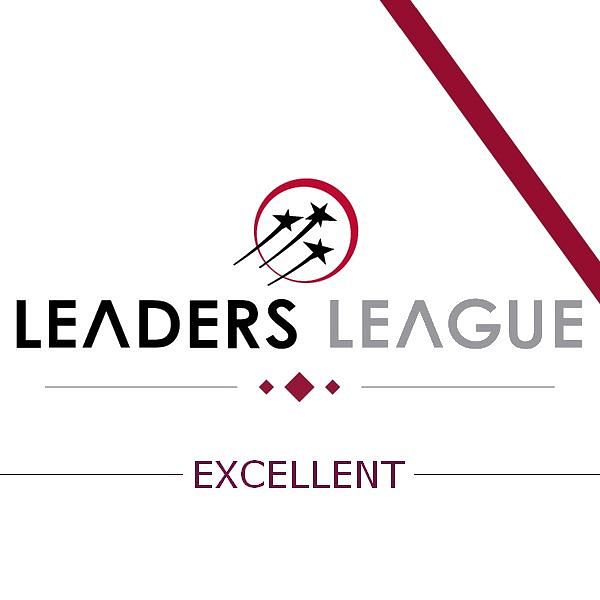
11/03/2020
Ranking Leaders League 2020 | Probity

10/03/2020
Ranking Leaders League 2020 | IP-IT
Ranking Leaders League 2020 - Our IP-IT team again greatly distinguished!
"Excellent" for "Industrial Property – Trademarks and Designs " | “Highly Recommended" for "Data Protection Law" | and “Renowned practice” for “IT Law”
Thanks to all of our clients for their unwavering trust.
#leadersleague @alexisguillemin @mathildechevauchez @fannyrochoux
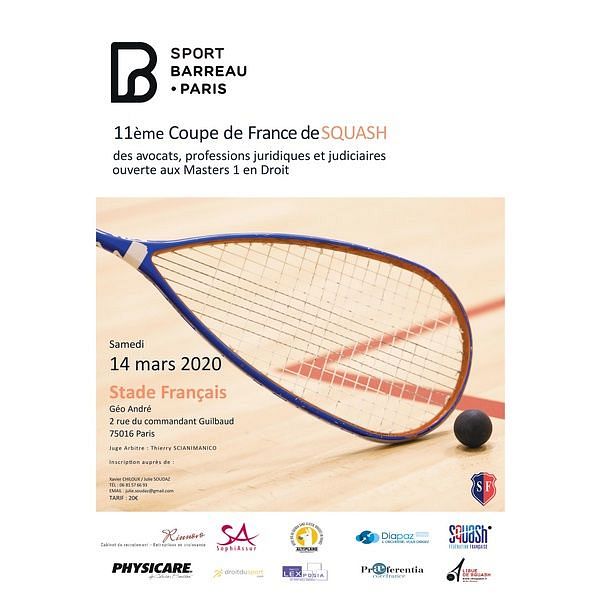
10/03/2020
Samedi 14 mars | "Squash au Palais"
Cette année encore, Julie Soudaz (Guillemin Flichy) co-organise avec Xavier Chiloux, l'incontournable Tournoi annuel de #Squash au Stade français.
Ouvert à toutes les professions juridiques, Alexis Guillemin sera également de la partie ! 💪

04/03/2020
Bénéficiaires effectifs : les associés des sociétés à découvert
Les bénéficiaires effectifs sont définis par le Code monétaire et financier comme les personnes physiques qui soit détiennent, directement ou indirectement, plus de 25 % du capital ou des droits de vote d’une société, soit exercent par tout autre moyen un pouvoir de contrôle sur une société.
Jusqu’à présent, l’accès au registre des bénéficiaires effectifs était réservé à certaines autorités, par exemple les magistrats, des agents spécialement habilités de Tracfin, des douanes, de la direction générale des finances publiques, de la police judiciaire et de la police nationale, de la gendarmerie, de la DGCCRF, des autorités de contrôle des banques et des assurances et des marchés financiers, les représentants ou autorités de contrôle des professions juridiques ou comptables, etc.
L’ordonnance du 12 février 2020 renforçant le dispositif national de lutte contre le blanchiment de capitaux et le financement du terrorisme autorise désormais l’accès au public à certaines informations personnelles sur les bénéficiaires effectifs des sociétés ou d’autres entités, à savoir : prénoms, nom, nom d'usage ou pseudonyme, mois et année de naissance, pays de résidence, nationalité ainsi qu'à la nature et à l'étendue des intérêts détenus dans une société ou une autre forme d’entité.
Ces informations devraient être prochainement consultables gratuitement via le site infogreffe.fr.

19/02/2020
Seconde décision de la Commission des sanctions de l’AFA
L’AFA a publié la décision de sa Commission des sanctions, rendue le 7 février 2020, relative au contrôle de la société Imerys SA.
Saisie de trois griefs ainsi que d’arguments contestant la régularité de la procédure, la Commission des sanctions :
- Valide la régularité de la procédure ;
- Ne constate pas de manquement d’Imerys concernant l’établissement d’une cartographie des risques. La société a en effet correctement appliqué la recommandation de l’AFA sur ce point ;
- Relève que le code éthique d’Imerys ainsi que son programme anticorruption ne sont pas conformes aux dispositions de la loi Sapin 2 relatives au code de conduite. Elle enjoint donc la société d’élaborer un tel code de conduite d’ici le 1er septembre 2020.
- Constate qu’Imerys met actuellement en œuvre une démarche de mise en conformité de ses procédures de contrôle comptable. Elle l’enjoint donc de transmettre toute preuve de ce qu’elle a complètement achevé la mise en conformité de ces procédures d’ici le 31 mars 2021.
L’équipe Probité de Guillemin Flichy faisait partie des 40 personnes ayant pu assister à l’audience tenue le 22 janvier 2020.
Décision n° 19-02 de la Commission des sanctions
#AFA #CommissionDesSanctions #carto #CodeDeConduite #ProcéduresComptables #compliance

11/02/2020
A recent example of the corporate veil being pierced within a French group of companies
A parent company should always be cautious before taking part in business negotiations on behalf of one of its subsidiaries. This was illustrated again by the Third Civil Chamber of the French Supreme Court (Cour de Cassation) on 12 December 2019 (Cass. 3° Civ. 12-12-2019 - 18-23.223).
In this case, a French parent company (the “Parent”) assisted one of its subsidiaries (the “Subsidiary”) in early terminating, in what it thought an amicable manner, a commercial lease agreement with its landlord. The termination agreement provided that the landlord was to receive no indemnity following such early termination. This negotiation followed a period during which the lease had been erratically paid by the Subsidiary.
After the termination agreement was executed, the Parent negotiated with the landlord for another of its subsidiaries the (the “Second Subsidiary”) to occupy the same premises for a very short time. After that, the premises were left empty. More than a year afterwards, the landlord sued the Subsidiary, the Parent and the Second Subsidiary to seek the cancellation of the lease termination agreement and to be awarded damages. It claimed, inter alia, that the early termination should have been supported by consideration and was therefore invalid, and that this has caused it a loss.
The Court of Appeals pronounced the cancellation of the termination agreement. The Subsidiary, the Parent and the Second Subsidiary were held liable to the landlord. Without commenting on the legal reasoning behind this decision, which is not our subject matter here, it is interesting to analyse why the Parent was also held jointly liable to the landlord.
The landlord successfully demonstrated that the Parent took part in the negotiations that led to the lease early termination agreement, that it also offered to facilitate the sale of the premises to a third party (in order to mitigate the financial consequences of the lease’s early termination), and that it finally suggested for another of its subsidiaries to briefly occupy the premises vacated by the Subsidiary.
It was noted by the Court of Appeals that emails were exchanged directly between the Subsidiary’s management and the landlord, as well as between the Parent’s General Counsel and the landlord. This, in the opinion of the Court of Appeals, created a “misleading appearance” that led the landlord to legitimately believe that the Parent had substituted the Subsidiary in the performance of the lease. The French Supreme Court confirmed the Court of Appels’ judgment on this key point. It must be noted that this decision is in line with an earlier 2015 decision from the Commercial Chamber of the French Supreme Court with resembling facts (Cass. com. 3-02-2015 - 13-24.895).
This case illustrates how a parent company should be cautious not to create the “legitimate impression” that it takes part in, or accepts the burden of, the commitments of one of its subsidiaries vis-à-vis third parties. The risk for the parent is to be held financially liable with such subsidiary. The case also emphasizes the usefulness to communicate exclusively through lawyers in this type of potentially litigious context. Indeed, communications between lawyers are deemed confidential and may as a result not be used in court.
#CorporateVeil #GourpOfCompanies #BusinessNegociations

05/02/2020
Dénonciation d’actes de harcèlement : une diffusion trop large peut être lourde de conséquences
La salariée d’une association a dénoncé des faits de harcèlement sexuel et moral, mettant en cause le vice-président de la structure, par un email adressé au Directeur Général de l’association, à l’Inspecteur du Travail et à diverses autres personnes (son époux et le directeur spirituel de l’association notamment).
Poursuivie pour diffamation publique envers un particulier, la salariée est condamnée par le tribunal correctionnel, décision en confirmée par la cour d’appel. Elle se pourvoit alors en cassation en invoquant :
- Les dispositions du Code du travail relatives au droit d’alerte (article L. 4131-1) et à la protection des salariés en matière de harcèlement moral (article L. 1152-2) qui permettent de dénoncer des faits de harcèlement ;
- L’article 122-4 du Code pénal qui prévoit une irresponsabilité pénale au bénéfice de la personne qui accomplit un acte prescrit par les dispositions législatives ou réglementaires.
La chambre criminelle de la Cour de cassation rejette l’argumentaire de la salariée et confirme la décision d’appel en considérant que, pour bénéficier de l’irresponsabilité pénale, la personne poursuivie doit avoir réservé la révélation des agissements de harcèlement à son employeur ou à des organes chargés de veiller à l’application des dispositions du code du travail (l’inspection du travail par exemple).
La salariée, qui avait adressé son email à d’autres personnes ne disposant pas de ces qualités, ne pouvait pas s’exonérer de sa responsabilité pénale.

31/01/2020
Trophées du Droit 2020
Hier soir, belle récompense reçue par #ThibaultGuillemin et son équipe pour leur expertise en #Compliance lors de l'événement #TrophéesduDroit
Bravo à #AntoineDelacarte et #ThomasChanzy
Merci à nos clients pour leur confiance. Going forward together!
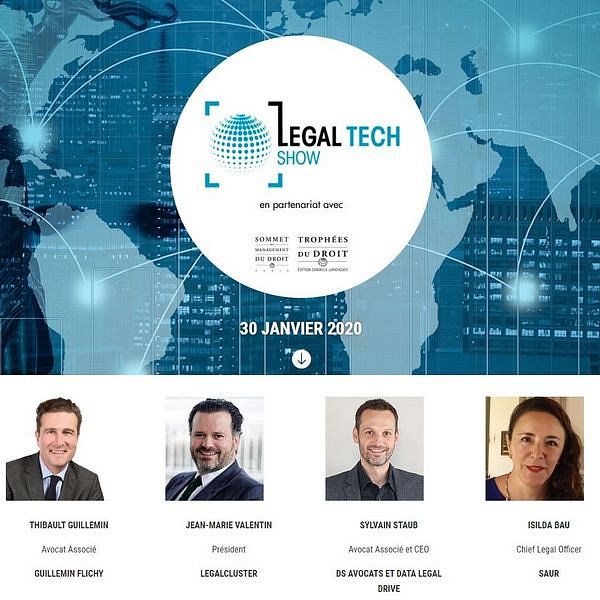
30/01/2020
The Legal Tech Show must go on!
Lors du Sommet du Droit 2020, Thibault Guillemin (Guillemin Flichy) participe au panel de la table ronde « RGPD : digitaliser la gouvernance » avec Jean-Marie Valentin (Legal Cluster), Isilda Bau (Saur) & Sylvain Staub (DS Avocats – Data Legal Drive).
Venez débattre des enjeux et des modalités de la digitalisation de la gouvernance RGPD.
Informations : Legal Tech Show
23/01/2020
Amende civile infligée à la société absorbante en raison de faits commis par la société absorbée : pas d’atteinte au principe de personnalité des peines
Dans un arrêt Carrefour France c/ France du 1er octobre 2019, la Cour européenne des droits de l’homme (ci-après la « CEDH ») a jugé qu’une société absorbante pouvait se voir imputer une amende civile pour des pratiques restrictives de concurrence commises par la société dissoute, sans qu’une telle imputation ne contrevienne au principe de la personnalité des peines.
En l’espèce, la société Carrefour France avait décidé de prononcer la dissolution sans liquidation de la société Carrefour Hypermarchés France, dont elle détenait la totalité du capital, entraînant transmission universelle de patrimoine à son profit. A la date de réalisation de l’opération, la société Carrefour Hypermarchés France était poursuivie pour pratiques anticoncurrentielles, sans qu’un juge ne soit encore prononcé.
La CEDH suit le raisonnement de la Cour de cassation imputant à la SAS Carrefour l’amende civile. Pour juger que le principe de personnalité des peines n’a pas été méconnu, la CEDH se fonde sur :
- « La continuité économique et fonctionnelle de l’entreprise ». Si la société Carrefour hypermarchés France a cessé d’exister juridiquement, son activité s’est en effet poursuivie au sein de la SAS Carrefour, qui a bénéficié de la fusion.
- « L’impératif d’efficacité de la sanction pécuniaire » qui risquerait d’être mis à mal en cas d’application mécanique du principe de la personnalité des peines à des personnes morales, dont la responsabilité économique ne doit pas disparaître par le jeu d’opérations telles que la fusion-absorption.
CEDH, 1er oct. 2019, aff. 37858/14, Carrefour France c/ France

16/01/2020
Conclusion d’une nouvelle CJIP relative à des faits de « corruption d’agent public étranger »
Le président du tribunal de grande instance de Paris a validé le 10 décembre 2019 la convention judiciaire d’intérêt public (CJIP) entre le parquet national financier (PNF) et la société d’ingénierie Egis Avia.
Celle-ci met fin aux poursuites pour des faits de « corruption d’agent public étranger » engagées à l’encontre de la société dans le cadre d’un marché de 4 millions d’euros conclu en 2008 pour la modernisation de l’aérogare d’Oran.
L’amende d’intérêt public s’élève à 2,8 millions d’euros. Afin de déterminer ce montant, le PNF a pris en compte :
- Comme facteurs minorants : l’ancienneté des faits et la coopération active de la nouvelle direction de la société ;
- Comme facteurs majorants : la tardivité de la coopération et la gravité des faits.

13/01/2020
Preuves de l’insuffisance professionnelle révélées lors du congés maternité : distinction entre découverte fortuite et collecte active
Le licenciement d’une salariée en congé maternité est prohibé par le code du travail (article L. 1225-4 du code du travail) et l’employeur ne peut pas préparer le licenciement de la salariée pendant cette même période (CJCE, 11 oct. 2007, aff. 460/06 rendu sur le fondement de l’article 10 de la directive 92/85 du 19 octobre 1992).
Se pose la question de savoir si la mise en évidence, pendant l’absence de la salariée en congé maternité, de ses carences professionnelles constitue un acte préparatoire au licenciement. En l’espèce, l’employeur demandait aux parties-prenantes de la structure, de confirmer par écrit leurs doléances sous forme d’attestations.
Confirmant la décision de la cour d’appel, la Cour de cassation estime que la simple réunion, par l’employeur, au fur et à mesure de leur signalement, d’éléments relatifs aux dysfonctionnements qui étaient portés à sa connaissance ne pouvait pas être considérée comme une mesure préparatoire au licenciement.
Le fait pour l’employeur de découvrir fortuitement les carences d’une salariée pendant son congé maternité ne lui permet pas, pour autant, de rechercher activement des motifs de licenciement.

10/01/2020
Loi de finances pour 2020 : focus sur le secteur non lucratif
Certaines dispositions de la loi n°2019-1479 du 28 décembre 2019 de finances pour 2020 concernent les acteurs du secteur non lucratif :
• Evolutions du régime du mécénat
Les débats parlementaires ont été particulièrement nourris autour des dispositions impactant le mécénat. Il en ressort que :
- Sur la fraction de dons au-delà de 2 millions d’euros par an, une entreprise mécène verra son taux de réduction d’impôt baisser de 60 à 40% ;
- Le plafond de réduction d’impôt en faveur du mécénat des TPE / PME est relevé de 10.000 à 20.000€ ;
- En matière de mise à disposition de personnel relevant d’une opération de mécénat, le montant de la rémunération brute servant de base au calcul de la réduction d’impôt est limité à trois fois le plafond de la sécurité sociale.
Radio France a été intégrée à la liste des organismes éligibles au mécénat pour le « financement des activités des formations musicales dont elle assure la gestion et le développement ».
• Relèvement de la franchise des impôts commerciaux
La franchise de lucrativité dont bénéficient les organismes sans but lucratif est relevée, de 63.059€ à 72.000€.
Retrouvez nos commentaires : Loi de finances 2020 : nouveautés pour le secteur non lucratif

09/01/2020
Happy New Year !
Bonne année !

02/01/2020
Une nouvelle version du Guide Pratique pour la Fonction Conformité Anticorruption dans l'Entreprise
L'Agence française anticorruption a publié, le 19 décembre, une nouvelle version de son Guide Pratique pour la Fonction Conformité Anticorruption dans l'Entreprise, initialement publié en janvier 2019.
Si la nouvelle version du Guide reprend la majorité des points présentés par l'AFA dans sa version initiale, elle intègre des observations formulées par différentes fédérations professionnelles et par la BPI.
Elle apporte notamment des éclaircissements utiles sur le rôle du responsable conformité :
- en matière de conduite d'enquêtes internes au sein de l'entreprise. L'AFA rattache en effet la conduite des enquêtes internes au rôle du responsable conformité dans la mise en œuvre des dispositifs de contrôle et d'évaluation interne ;
- en matière de conseil des dirigeants ou salariés et ce, en parallèle de ses activités de mise en œuvre du programme de conformité.
#AFA #FonctionConformité #Guide

17/12/2019
Une nouvelle protection européenne pour les lanceurs d'alerte
Longuement débattue, la directive (UE) 2019/1937, du 23 octobre 2019, sur la protection des personnes qui signalent des violations du droit de l'Union vient d’être publiée. Elle vise à assurer une protection harmonisée des lanceurs d’alerte au sein des Etats membres.
En France, les lanceurs d’alerte salariés bénéficient déjà d’un dispositif de protection, depuis l’adoption de la loi Sapin 2. Le régime de protection prévu par la directive est plus large, puisqu’il vise non seulement les lanceurs d’alerte salariés mais également les actionnaires, les anciens collaborateurs, les sous-traitants, ainsi que les personnes ayant facilité le signalement.
Les mesures de révision des dispositions de la loi Sapin 2 visant à transposer la directive devront intervenir avant le 17 décembre 2021.

29/11/2019
5 questions sur la charte d'utilisation des médias sociaux en entreprise
Retrouvez l'article publié par Stéphane Flichy et Théo Loucel sur Chef d'Entreprise Mag.
"En 2019, 42% de la population mondiale utilisent quotidiennement les médias sociaux. Ce chiffre explique le développement des textes réglementant l'usage des médias sociaux dans le cadre du travail : de quoi s'agit-il ? Quelles sont les règles ?"

19/11/2019
Licenciement nul : précisions sur l’indemnisation du salarié réintégré
Dans une décision du 16 octobre 2019, la Cour de cassation apporte plusieurs précisions sur les sommes versées au salarié réintégré, à la suite de la reconnaissance du caractère nul de son licenciement.
Pour rappel, le salarié a droit au versement d’une indemnité égale à la rémunération qu’il aurait dû percevoir entre son éviction et sa réintégration « dans la limite des salaires dont il a été privé ».
Sont ainsi déduits de l’indemnité les revenus de remplacement et rémunérations perçus par le salarié au cours de cette période. Par exception, en cas de licenciement constitutif d’une violation d’une liberté fondamentale, le salarié a droit à l’ensemble de la rémunération dont il a été privé, sans déduction des revenus perçus par lui pendant cette période.
Dans son arrêt du 16 octobre dernier, la Cour a précisé :
- Sur le montant de l’indemnité :
Lorsqu’un salarié est licencié pendant la période de suspension provoquée par un accident du travail, le licenciement ne porte pas nécessairement atteinte à son droit fondamental à protection de la santé. Il convient en effet de déterminer si le motif du licenciement repose sur l’état de santé.
La Cour adopte ainsi une position raisonnable dans la mesure où elle invite les juges du fond à examiner attentivement la cause du licenciement, avant d’accorder au salarié une indemnisation onéreuse pour l’employeur.
- Sur la nature de l’indemnité :
En cas de réintégration du salarié, l’indemnité étant versée à l’occasion du travail, elle est soumise, tant pour l’employeur que pour le salarié, à cotisations sociales.

14/11/2019
Salarié exposé à une substance toxique : la réparation du préjudice d’anxiété est possible
Par un arrêt du 11 septembre 2019, la Cour de cassation a jugé que le salarié exposé à une substance nocive ou toxique générant un risque élevé de développer une pathologie grave peut agir contre son employeur pour manquement à son obligation de sécurité.
Quand bien même aucune pathologie n’a été démontrée, le salarié peut agir en invoquant un préjudice d'anxiété.
Jusqu'à cette décision, la possibilité d'agir sur ce fondement était limitée aux seuls salariés exposés à l'amiante.
Cet arrêt ouvre donc la possibilité d'agir en réparation du préjudice d'anxiété à tous les salariés exposés à une substance nocive ou toxique et non plus aux seuls salariés exposés à l'amiante.
Audience publique du mercredi 11 septembre 2019
#obligationdesécurité #préjudicedanxiété
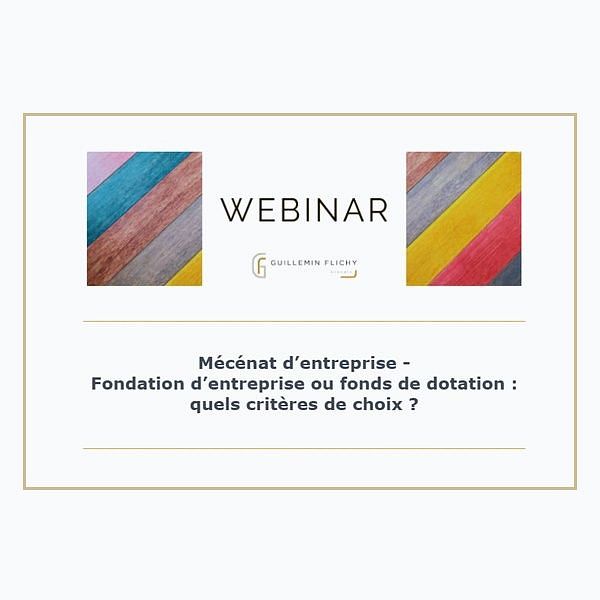
07/11/2019
Webinar - Save the date
▶️ #Webinar
20 novembre à 11h00 | Mécénat d’entreprise - Fondation d’entreprise ou fonds de dotation : quels critères de choix ?
Animé par Mathilde Delaunay Prieur, avocat Of Counsel chez Guillemin Flichy.
Inscription gratuite ⤵️
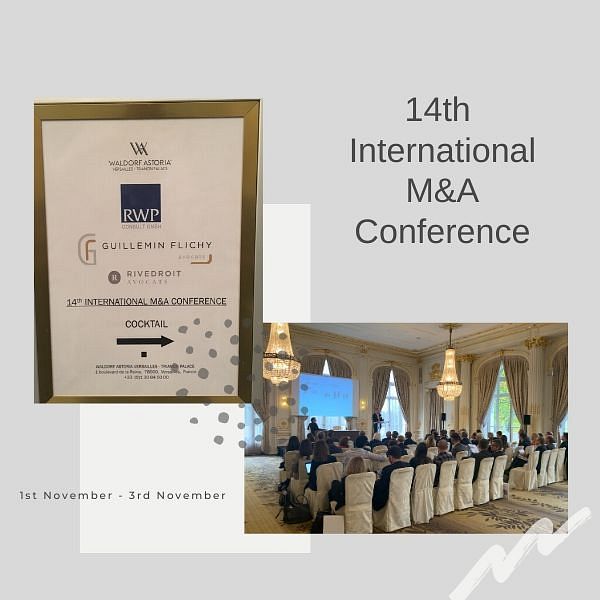
04/11/2019
14th International M&A Conference
This weekend, the 14th International M&A Conference took place in Versailles, France.
Guillemin Flichy were fortunate to co-host the event, which is a long-time creation of our German colleagues from the RWP law firm, with our French colleagues from the "RiveDroit Avocat" law firm
These 3 days were an opportunity to welcome renowned colleague-speakers from different European countries, to discuss particularities of their national legislations in M&A transactions and to exchange over recent trends and developments related to this subject.
Participants to this fourteenth edition of the Conference were also able to enjoy the wonders of the Château de Versailles, a privatized visit of the famous Parisian Nissim de Camondo museum, and other great occasions to socialize “à la française”
We are very proud to have welcomed our European Colleagues and made them discover all these riches both during seminars and social activities.
See you next year !

04/11/2019
Rank - Decideurs/Leaders League
Our IP-IT team is very honored of being again distinguished "Excellent" in Décideurs/Leaders League for "Industrial Property – Trademarks and Designs ".
Thanks to our clients for their unwavering trust.

22/10/2019
Guillemin Flichy & Ideal Groupe
Guillemin Flichy, partenaire d'Ideal Groupe
Les équipes de GF sont fières d'avoir accompagné ID&AL Groupe dans leur levée de fonds de plus de 11 millions d'euros.
Une belle opération pour de beaux projets en perspective !

22/10/2019
FNAF 2019
Le 16 octobre dernier, Mathilde Delaunay Prieur était présente sur le stand 177 du Forum National des Associations & Fondations, rendez-vous incontournable du secteur associatif !

18/10/2019
Dans le silence des statuts, quel délai pour convoquer les associés d’une SAS ?
Le Code de commerce ne prévoit aucun délai pour réunir les associés d’une société par actions simplifiée (SAS), que ce soit en assemblée générale ou pour toute autre forme de décision à prendre par les associés. Il revient donc aux statuts de se prononcer.
L’associé d’une SAS, dont les statuts ne prévoyaient pas de délai, prétendait qu’une convocation à l’assemblée générale ordinaire adressée 15 jours avant ne respectait pas un délai raisonnable. Il en a donc demandé le report, ce qui lui a été refusé par le Président de cette société.
La Cour d’appel de Paris précise qu’en l’absence de dispositions légales ou statutaires, il convient d’apprécier le caractère raisonnable du délai, au regard du contexte. En l’espèce, malgré des relations difficiles entre associés, le délai de 15 jours permettait d’examiner les points à l’ordre du jour ainsi que les documents joints à la convocation. Selon les juges, ce délai était raisonnable et le refus de faire droit à la demande de report n’était pas constitutif d’une faute.
Arrêt du 6 août 2019, Pôle 5, chambre 8, n° 17/16974.
#SAS #Assemblée générale
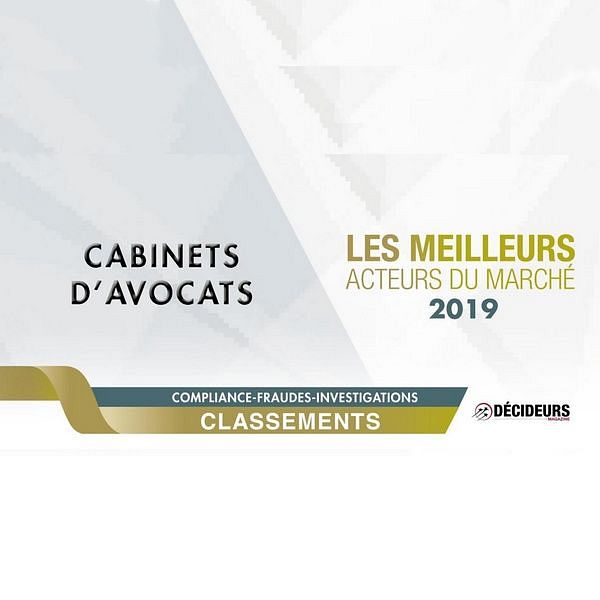
18/10/2019
Guillemin Flichy team is once again distinguished in compliance, fraud and investigations.
Guillemin Flichy has been ranked by Décideurs Magazine - Groupe Leaders League as "Excellent" in the "International Investigation and Internal Investigation" category and as having a "Strong Notoriety" in both the "Compliance Programs" and the "New Technologies - Personal Data" categories.
You will find the latest article by Thibault Guillemin and Antoine Delacarte on the respect of the contradictory principle during internal investigations: Click Here
Congratulations to our team!
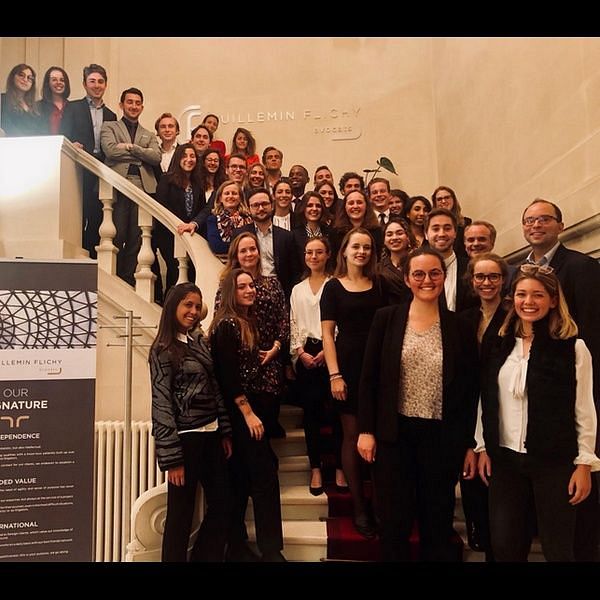
04/10/2019
GF partenaire du Master 2, Droit des affaires 214 de Dauphine !
Nos équipes ont eu le plaisir hier soir, de recevoir la Promo 2019-2020 du Master 214 pour échanger tout au long de la soirée !

02/10/2019
Entreprises et contentieux : la médiation a le vent en poupe
Le Baromètre 2018 du Centre de médiation et d’arbitrage de Paris (CMAP) confirme que les entreprises privilégient de plus en plus la voie d’une solution négociée pour régler leurs contentieux intra et inter-entreprises.
La médiation permet de conclure un accord « sur-mesure », dans tous les secteurs économiques, y compris pour les litiges à forts enjeux financiers (en 2018, 72% des dossiers confiés au CMAP portaient sur des enjeux supérieurs à 150.000 euros).

27/09/2019
La conclusion d’une CJIP met fin aux poursuites relatives à l’imposition de Google en France
Le président du tribunal de grande instance de Paris a validé le 12 septembre 2019 la convention judiciaire d’intérêt public (CJIP) entre le parquet national financier et les sociétés Google France SARL et Google Ireland Ltd.
Celle-ci met fin aux poursuites de « fraude fiscale aggravée » engagées en 2015 par le PNF, moyennant le paiement, par les deux sociétés concernées, d’une amende d’intérêt public d’un montant record de 500 millions d’euros. Cette CJIP est adossée à un accord en matière fiscale signé entre Google et la direction générale des finances publiques.

24/09/2019
Guillemin Flichy se renforce en corporate / M&A
Guillemin Flichy vient d’accueillir Julie Soudaz en qualité de collaboratrice senior au sein son équipe Investments.
Diplômée d'un Master 2 en Droit des Affaires mention Juriste Européen, ainsi que d’un LLM mention Business Law (Queen Mary University), Julie intervient en droit des sociétés, corporate et transactionnel.
Avant de rejoindre Guillemin Flichy, Julie a exercé pendant 10 ans au sein de plusieurs cabinets d’avocats d’affaires, dont un cabinet de réseau, ainsi qu’au sein du département juridique d’une entreprise du CAC 40.
Elle assiste les sociétés tant dans leur vie juridique quotidienne, que dans leurs opérations de croissance externe et de restructuring.
Bilingue en anglais, Julie vient notamment en appui des opérations que Guillemin Flichy effectue pour ses clients étrangers.

12/09/2019
Nos réponses à vos 10 questions sur le télétravail
Le télétravail a fait l’objet d’une clarification et d’une simplification par l’Ordonnance Macron n°2017-1387 du 22 septembre 2017. (Articles L.1222-9 à L.1222-11 du Code du travail).
Sans entrer dans le détail de cette ordonnance, nous vous proposons de répondre à vos questions les plus courantes sur le télétravail.
Vos 10 questions sur le télétravail

10/09/2019
Obtenir le chômage après une démission: c'est bientôt possible
Retrouvez l'article publié par Stéphanie Zurawski et Théo Loucel sur Chef d'Entreprise Mag.
"Le salarié démissionnaire pourra désormais prétendre au versement des allocations chômage, mais ce à une condition : présenter un projet viable de reconversion professionnelle. Le point sur ce nouveau dispositif."
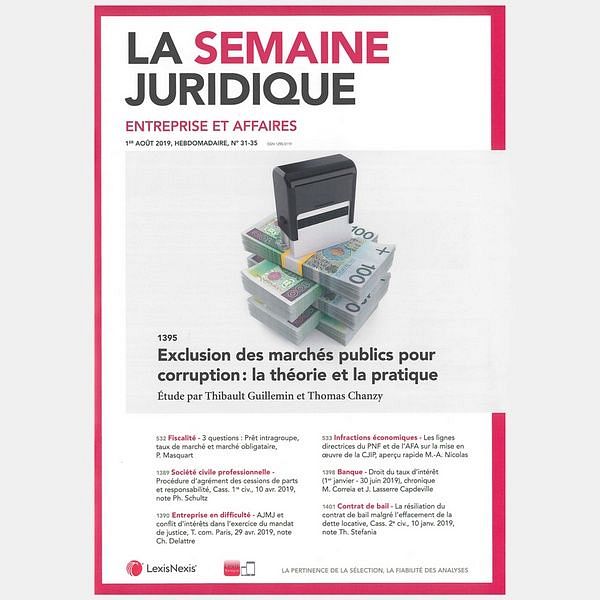
03/09/2019
Pénal des affaires - Semaine Juridique Entreprises & Affaires
Thibault Guillemin & Thomas Chanzy font le point sur le risque d’exclusion, pour les entreprises, des marchés publics en cas de condamnation pour corruption :
Exclusion des marchés publics pour corruption : la théorie et la pratique

02/09/2019
Mécénat d’entreprise : nouvelles précisions de l’administration fiscale
Les nouveautés apportées au mécénat d’entreprise par la loi de finances pour 2019 ont été commentées par l’administration fiscale et intégrées au Bulletin officiel des finances publiques le 7 août 2019 :
- Plafond du montant des versements ouvrant droit à réduction d’impôt : pour les versements effectués au cours des exercices clos à compter du 31 décembre 2019, création d’un plafond de 10.000€, alternatif à celui préexistant de 0,5% du chiffre d’affaires. Le plafond de versement à prendre en compte est celui de 10.000€ sauf si celui de 0,5% est plus élevé ;
- Nouvelle obligation déclarative incombant aux entreprises mécènes à partir de 10.000€ de dons annuels : les entreprises concernées doivent déclarer le montant et la date de ces versements, l’identité des bénéficiaires ainsi que, le cas échéant, la valeur des biens et services reçus en contrepartie. Pour plus de précisions sur ce dispositif -> http://bit.ly/2knkXZS

26/08/2019
Pas de vacances pour la Cour de Justice de l’Union Européenne !
Celle-ci a publié, le 29 juillet dernier (aff. C-40/17), un arrêt qualifiant une société de responsable conjoint de la collecte et de la transmission des données personnelles de ses internautes à Facebook, du seul fait de l’insertion d’un bouton « J’aime » sur son site Internet.
En effet, selon la Cour, cette société détermine non seulement les moyens dudit traitement, qu’elle rend possible grâce à l’insertion de ce module social sur son site, mais également ses finalités, la communication desdites données lui permettant d’optimiser la visibilité de ses propres produits sur le réseau social.
Co-responsabilité des différents acteurs ne se traduit toutefois pas nécessairement par un niveau équivalent de responsabilité, celui-ci devant être apprécié à la lumière du degré d’implication de chacun dans le traitement litigieux.
En savoir + : #544bc2; touch-action: manipulation; font-family: -apple-system, system-ui, BlinkMacSystemFont, 'Segoe UI', Roboto, 'Helvetica Neue', 'Fira Sans', Ubuntu, Oxygen, 'Oxygen Sans', Cantarell, 'Droid Sans', 'Apple Color Emoji', 'Segoe UI Emoji', 'Segoe UI Emoji', 'Segoe UI Symbol', 'Lucida Grande', Helvetica, Arial, sans-serif; white-space: pre-wrap; line-height: inherit !important;" href="https://lnkd.in/gTyVee2" target="_blank" rel="noopener noreferrer">https://lnkd.in/gTyVee2

26/07/2019
Publication de la loi n° 2019-744 de simplification, de clarification et d'actualisation du droit des sociétés du 19 juillet 2019
Parmi les multiples dispositions de cette loi, trois attirent particulièrement l’attention :
- la suppression de l’obligation de soumettre tous les trois ans aux actionnaires, une augmentation de capital réservée aux salariés. Cette obligation s’imposait aux Sociétés Anonymes, Sociétés par Actions Simplifiées, Sociétés en Commandite par Actions, si leurs salariés et ceux des sociétés du groupe détenaient moins de 3% du capital de la société dans le cadre d’une gestion collective (PEE, FCPE,..). Demeure toutefois obligatoire la consultation des actionnaires à l’occasion de toute décision d’augmentation du capital par apport en numéraire ;
- la suppression de certaines mentions obligatoires dans les actes de cession de fonds de commerce ;
- la non prise en compte dans le calcul de la majorité, des absentions ainsi que des votes blancs et nuls, lors des assemblées générales de Sociétés Anonymes.
En savoir +: loi n° 2019-744
#SimplificationDroitdesSociétés #ActionnariatSalarial #CessionFondsdeCommerce

25/07/2019
Délibération du 4 juillet 2019 : La CNIL publie ses recommandations en matière de cookies et autres traceurs
Elle y précise notamment les modalités de recueil du consentement de l’internaute à l’utilisation de ces traceurs, lequel doit être libre, spécifique, éclairé et univoque. N’est par exemple pas conforme à ces exigences la pratique consistant à déduire un tel consentement du simple fait de continuer à naviguer sur un site web ou une applicable mobile.
#RGPD #DONNEESPERSONNELLES #COOKIES #CNIL

18/07/2019
La Cour de cassation sauve le barème Macron !
L’avis était attendu. La formation plénière de la Cour de cassation a validé le barème Macron par deux avis (n° 15012 et 15013) du 17 juillet 2019.
La position de la Cour devrait ainsi mettre définitivement fin à la résistance de certains conseils de prud’hommes pour lesquels ce barème n’était pas conforme aux engagements européens et internationaux de la France.
La Cour a d’abord estimé que le dispositif ne rentrait pas dans le champ d’application de l’article 6§1 (procès équitable) de la CESDH.
Elle a ensuite écarté l’opportunité de confronter ce barème avec l’article 24 de la Charte sociale européenne selon lequel le travailleur injustement licencié a droit à une indemnité adéquate ou à une réparation appropriée.
Elle relève enfin que le barème est compatible avec l’article 10 de la convention n°158 de l’OIT qui prévoit également l’allocation d’une indemnité adéquate ou toute autre réparation appropriée envers le salarié injustement licencié.
Selon la Cour, la France dispose d’une marge d’appréciation suffisante de la réparation « adéquate » à garantir au salarié pour mettre en place le barème Macron.
Si ces avis ne sont pas contraignants, ils devraient néanmoins être suivis par les Cours d’appel appelées à se prononcer sur la question.
Avis n° 15012 du 17 juillet 2019

12/07/2019
Un après-midi hors du temps
Hier, la #TeamGF était au vert à bord d’une célébrité des plus mythiques : un rallye en « deuche ».
Au menu : pilotage, orientation, visites, saveurs du terroir et pétanque. Le made in France à la GF !

10/07/2019
Première convention judiciaire d’intérêt public en matière de fraude fiscale
Le 28 juin 2019, le tribunal de grande instance de Paris a validé la première CJIP concernant une affaire de fraude fiscale. Pour rappel, le champ de la CJIP, initialement limité à la corruption, au trafic d’influence et au blanchiment de fraude fiscale a récemment été étendu aux infractions de fraude fiscale (loi n°2018-898 du 23 octobre 2018 de lutte contre la fraude).
L’administration fiscale reprochait à la société Carmignac Gestion d’avoir utilisé deux sociétés immatriculées au Luxembourg pour y déplacer une partie de son activité taxable, où elle bénéficiait d’un taux d’imposition réduit, avant de rapatrier ces bénéfices en France sous forme de dividendes en profitant du régime fiscale favorable mère-fille. La société de gestion a ainsi accepté de payer une amende d’intérêt public de 30 millions d’euros pour mettre fin à l’enquête préliminaire du parquet national financier pour des soupçons de « fraude fiscale ».
Convention judiciaire d’intérêt public entre le PNF et Carmignac Gestion : http://bit.ly/32fCk05
Ordonnance de validation du TGI de Paris du 28 juin 2019 : http://bit.ly/2G5MvuC

09/07/2019
Mise en œuvre de la convention judiciaire d’intérêt public : lignes directrices communes du parquet national financier et de l’Agence française anticorruption
Dans le rapport publié le 26 juin, l’accent est mis sur le niveau de coopération attendue de la part personnes morales poursuivies, une telle coopération justifiant de l’abandon des poursuites et du recours à la CJIP et pouvant influer sur la détermination du montant de l’amende d’intérêt public.
A cet égard, seront susceptibles d’être pris en compte favorablement par le parquet la révélation spontanée des faits par la personne morale, la mise en œuvre d’une enquête interne ou l’indemnisation spontanée de la victime.
En savoir + : http://bit.ly/2S3EnPY

04/07/2019
Le décret n°2019-531 du 27 mai 2019 précise les conditions de la déclaration incombant aux entreprises mécènes au-delà de 10.000€ de dons annuels.
Cette déclaration doit être effectuée par l’entreprise, corrélativement à sa déclaration annuelle de résultat, selon le format établi par l’administration fiscale. A l’heure de la dématérialisation des déclarations, une interface dédiée permettra ainsi d’effectuer cette déclaration en ligne. Pour mémoire, doivent être reportées les informations suivantes : montant et date des dons, identité des structures bénéficiaires, valeur des biens et services reçus, directement ou indirectement, en contrepartie.
S’agissant des groupes fiscalement intégrés, la déclaration est effectuée par la société mère.
#mécénat #EntreprisesMécènes #ObligationsDéclaratives #CodeGénéralDesImpôts #Associations #Fondations #FondsDeDotation #FL2019
En savoir + : http://bit.ly/2FUy906

02/07/2019
PETRUS contre PETRUS LAMBERTINI : Sois habile et relaxe toi !
Confirmant l’arrêt d’appel, la chambre criminelle de la Cour de cassation a jugé que l’utilisation « habile » d’une marque comprenant l’élément verbal « PETRUS » sur des étiquettes de vin, dans le but manifeste d’attirer l’attention, n’était pas de de nature à tromper le client ou à risquer de le tromper. Selon la Cour, les faits ne sont ainsi ni trompeurs, ni de nature à altérer de manière substantielle le comportement économique d’un consommateur de vin normalement informé et raisonnablement attentif et avisé.
#PRATIQUECOMMERCIALETROMPEUSE #PETRUS
En savoir + : Cass. Crim., 12 juin 2019, n°18-83298

28/06/2019
L’Agence Française Anticorruption publie son rapport annuel pour 2018.
Lacunes constatées, bonnes pratiques observées, spécificités du secteur public, chiffres, analyses, périmètre de sa mission, actions de promotion : ce rapport dense illustre l’intensité et la diversité des missions de conseils et de contrôle de l’AFA.

27/06/2019
Rapport Gauvain : Les juristes d’entreprise pourraient bientôt bénéficier d’un legal privilege.
Le rapport Gauvain remis le 26 juin au Premier ministre Edouard Philippe, a pour objet de formuler des préconisations en vue de protéger les entreprises françaises des lois et mesures extraterritoriales, notamment des sanctions américaines. A cette fin, le rapport propose la création du statut d’ « avocat en entreprise » permettant aux avis émis par les juristes internes de bénéficier du privilège de la confidentialité. A cette mesure phare, s’ajoutent le projet de modernisation de la « loi blocage » ainsi que l’adoption d’une loi présentée comme une extension du RGPD aux personnes morales. Enfin, le rapport préconise l’élaboration d’une doctrine nationale « sur les secrets à protéger », en vue d’éviter la transmission d’informations sensibles par l’administration.
#LegalPrivilege #RapportGauvain #Entreprises #Avocat #AvenirAvocat
En savoir + : https://bit.ly/2YkFoWc

26/06/2019
Les premières « raisons d’être » adoptées par les sociétés cotées
La loi relative à la croissance et la transformation des entreprises du 22 mai 2019, dite loi « PACTE », a ouvert aux sociétés la possibilité de préciser dans leur statuts une « une raison d'être ».
Sans attendre le vote définitif de la loi PACTE, l’assemblée générale de la société ATOS du 30 avril 2019 avait déjà voté l’inscription d’une telle « raison d’être » dans ses statuts. Plus récemment, l’assemblée générale de CARREFOUR du 14 juin 2019 a voté, à plus de 97 % des voix, la raison d’être suivante : « Notre mission est de proposer à nos clients des services, des produits et une alimentation de qualité et accessibles à tous à travers l’ensemble des canaux de distribution. Grâce à la compétence de nos collaborateurs, à une démarche responsable et pluriculturelle, à notre ancrage dans les territoires et à notre capacité d’adaptation aux modes de production et de consommation, nous avons pour ambition d’être leader de la transition alimentaire pour tous. »
#RaisondEtreATOS #RaisondEtreCARREFOUR #LoiPacte
En savoir + : https://bit.ly/31Tx95D

24/06/2019
Quel avenir pour le " barème Macron " ?
Retrouvez l'article publié par Stéphane Flichy et Stéphanie Zurawski sur Chef d'Entreprise Magazine
"Quel avenir pour le " barème Macron " ?
L'ambition affichée du barème Macron d'une meilleure visibilité financière en cas de licenciement sans cause réelle et sérieuse est mise à mal par la réticence des Conseils de Prud'hommes à l'appliquer."
#3B7Amyg6qca2ueSl.97">Lire l'article

19/06/2019
Codification des dispositions relatives à l’agence nationale du sport
L’agence nationale du sport, créée par ordonnance et dont le lancement a été officialisé le 24 avril, a pour objet de favoriser le sport de haut niveau et l’accès à la pratique sportive, notamment en vue des jeux olympiques de 2024.
La ministre des sports a déposé, le 12 juin 2019, un projet de loi de ratification de cette ordonnance, précisant les objectifs et le fonctionnement de l’agence. Ces dispositions seront intégrées dans le code du sport.
La tenue du premier conseil d’administration avait validé la création d’un Comité d’éthique, de déontologie, de rémunération et d’audit. Les trois principaux dirigeants ont transmis des déclarations à la HATVP.
#éthique #sport #gouvernance #JO2024
En savoir + : Projet de Loi

17/06/2019
Stagiaire M1 | M2
Période Septembre 2019- Décembre 2019
Présentation de l'entreprise
Guillemin Flichy fournit aux entreprises une prestation juridique à forte valeur ajoutée sur tous leurs projets d’investissements et d’innovation, leurs dispositifs de compliance, ainsi que dans le cadre de leurs contentieux.
Profil recherché
Vous êtes titulaire d’un Master 1 ou Master 2 spécialisé en droit des affaires, complété d'une double formation (LLM, IEP ou école de commerce).
Une excellente pratique de la langue anglaise est indispensable.
Capable d'une rédaction rigoureuse, concise et argumentée, vous serez également apprécié(e) pour votre culture juridique de haut niveau, votre pragmatisme et votre enthousiasme à l'idée d'effectuer un stage au sein d’une structure dynamique et entrepreneuriale.
Descriptif du poste
Vous interviendrez sur des dossiers de conseil et de contentieux pour une clientèle institutionnelle de premier plan, sur des problématiques juridiques variées, en lien avec les autres équipes du cabinet (IP/IT, éthique & compliance, pénal, social).
Candidature à envoyer soit à l’adresse recrutement@guilleminflichy.com, soit directement sur notre site internet.

17/06/2019
Fait religieux dans l’entreprise et licenciement : fin d’une saga judiciaire
Le 18 avril 2019, la cour d’appel de Versailles a jugé discriminatoire et a annulé le licenciement pour faute grave d’une salariée en contact avec la clientèle qui avait refusé d’ôter son voile à la demande d’un client.
Cet arrêt reprend les enseignements de celui de la Cour de cassation (Cass. soc. 22 novembre 2017, n° 13-19.855) et de l’avis de la Cour de Justice de l’Union Européenne (CJUE 14 mars 2017, aff. 188/15) rendus sur cette même affaire.
Dans son arrêt la Cour d’appel rappelle qu’une règle interne peut imposer aux salariés une obligation de neutralité générale leur interdisant le port visible de tout signe politique, philosophique ou religieux, à condition (i) d’être prévue dans le règlement intérieur ou dans une note de service, (ii) d’être générale et indifférenciée et (iii) de n’être appliquée qu’aux salariés se trouvant en contact avec les clients.
#Religion #Licenciement #Discrimination #Travail
En savoir + : https://bit.ly/2XmKlQU

13/06/2019
Programme de conformité
Le 30 avril dernier, la Division pénale du Département de la Justice américain (« DoJ ») a publié une nouvelle version de son document d’orientation à destination des procureurs concernant l’évaluation des programmes de conformité (« Evaluation of Corporate Compliance Programs »). Ce document actualise les précédentes directives publiées par le DoJ en février 2017.
La nouvelle ligne directrice fournit des indications sur la façon dont les autorités de poursuite évalueront l'efficacité du programme de conformité d'une société poursuivie. Le document d’orientation a été réorganisé autour de trois questions fondamentales permettant d’évaluer la qualité d’un programme de conformité : (i) le programme de conformité a-t-il été bien conçu par la société ? ; (ii) le programme de conformité est-il mis en œuvre efficacement par la société (soit de bonne foi) ? (iii) est-ce que le programme de conformité fonctionne en pratique ?
Chacune de ces questions recouvrent différents thèmes qui seront analysées par les autorités de poursuite (due diligence, cartographie des risques, programmes de formation…) lors de leur enquête.
#programmedeconformité #DoJ #compliance #USA
En savoir + : https://bit.ly/2lEphmk

12/06/2019
1er juin 2019 : Entrée en vigueur du décret d’application "Informatique et Libertés"
1er juin 2019 : Entrée en vigueur du décret d’application n°2019-536 de la loi n°78-17 Informatique et Libertés telle que modifiée conformément au RGPD
Publié le 30 mai 2019 après avis motivé de la CNIL du 9 mai, ce décret abroge les anciennes dispositions règlementaires issues d’un précédent décret du 20 octobre 2005.
Il complète et clarifie l’arsenal législatif français applicable aux traitements de données personnelles, s’agissant notamment des contrôles sur place qui peuvent être effectués par la CNIL ou des modalités d’exercice des droits auprès du responsable de traitement.
En savoir + : https://bit.ly/2WEr5is

05/06/2019
Rémunération des lanceurs d’alerte en matière fiscale
Le décret n°2017-601 du 21 avril 2017 avait introduit, à titre expérimental et pour une durée de deux ans, la possibilité de rétribuer les lanceurs d’alerte en matière fiscale. Cette pratique a été pérennisée par décret du 15 mai 2019.
#AlerteFiscale #rémunération #whistleblower
En savoir + : https://bit.ly/2K0HozA

04/06/2019
Commissaires aux comptes : le décret d’application de la loi PACTE est paru
Le décret du 24 mai 2019 relève les seuils au-delà desquels la nomination de Commissaires aux comptes est obligatoire pour les sociétés commerciales (SAS, SARL, SA,…) :
- total du bilan de 4 M € ;
- chiffre d’affaires HT de 8 M€ ;
- 50 salariés : ce seuil, déjà applicable aux SARL, aux sociétés en nom collectif et aux société en commandite simple a été relevé de 20 à 50 salariés pour les SAS.
Les sociétés qui ne dépassent pas 2 de ces 3 seuils pendant les deux exercices précédant l’expiration du mandat de leur commissaire aux comptes ne seront pas tenues de renouveler le mandat venant à expiration.
Les groupes de sociétés sont également visés par le texte. La société mère d’un groupe devra nommer un Commissaire aux comptes si les montants cumulés des bilans, chiffres d’affaires et salariés des sociétés du groupe, dans son ensemble, dépassent 2 des 3 seuils précités. Cette nomination n’est toutefois pas obligatoire si la société mère est elle-même contrôlée par une personne ou une entité ayant désigné un Commissaire aux comptes.
De plus, la société d’un groupe devra elle-même nommer un Commissaire aux comptes si, à elle seule, elle dépasse 2 des 3 seuils suivants : total du bilan de 2 M€, chiffre d’affaires HT de 4 M € et nombre moyen de salariés de 25.
Les entités astreintes à publier des comptes consolidés, les banques, les compagnies d’assurance, les mutuelles et les sociétés cotées en bourse restent, comme auparavant, tenues de nommer un ou plusieurs Commissaires aux comptes, selon les règles qui leurs sont spécifiquement applicables et sans considération de seuils.
#CommissaireAuxComptes #AuditDesComptes #DroitDesSociétés #GroupeDeSociétés #LoiPACTE
En savoir + : https://bit.ly/2KnFhVP
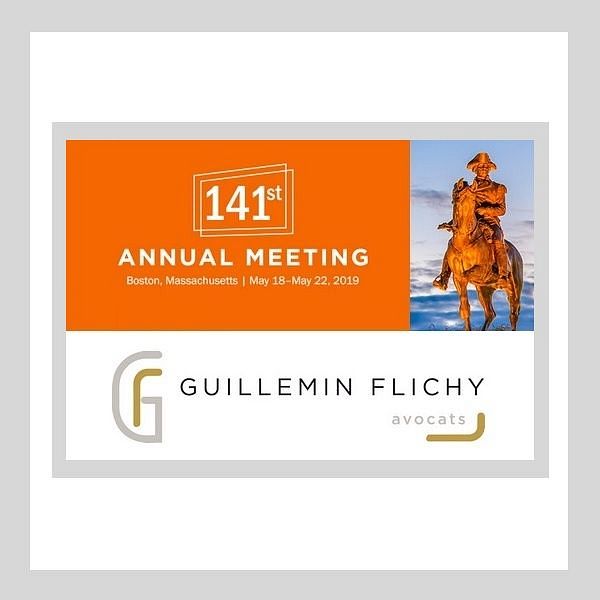
28/05/2019
INTA 2019 !

23/05/2019
Dissolution par le juge d’une société pour mésentente entre associés
Un arrêt de la Cour de cassation du 10 avril 2019 donne une illustration de la dissolution judiciaire anticipée d’une société, motivée par une mésentente entre associés égalitaires en paralysant le fonctionnement.
Depuis la constitution de cette société, aucune assemblée générale n’avait été convoquée par le Gérant associé, si bien qu’un administrateur provisoire avait dû être nommé, et ce sans aucune amélioration de la situation puisque les procédures judiciaires entre associées avaient augmenté « de manière exponentielle ». En conséquence, la Cour de Cassation approuve la Cour d’appel d’avoir prononcé la dissolution de cette société, après avoir constaté que la « mésentente permanente et générale », « pérennisée et presque institutionnalisée » en paralysait le fonctionnement.
#DissolutionDeSociété #MésententeEntreAssociés
En savoir + : https://bit.ly/2VWwEby

21/05/2019
N’enregistre pas ‘Neymar’ qui veut
Le Tribunal de l’Union Européenne a fait droit à la demande du célèbre joueur de football et a annulé une marque de l’Union Européenne « NEYMAR » déposée pour des chaussures, vêtements et chapellerie en classe 25.
Il a en effet considéré que ce dépôt ne pouvait résulter d’une simple coïncidence mais bien d’une intention de mauvaise foi du déposant, qui ne pouvait prétendre - même à la date du dépôt de la marque en décembre 2012 - ignorer l’existence de ce joueur déjà reconnu comme un joueur de football très prometteur attirant l’attention des grands clubs européens.
En savoir + : https://bit.ly/2VSWLQB

21/05/2019
Précisions quant aux dons de denrées alimentaires aux associations
Les commerces de détail alimentaires, d’une surface supérieure à 400 m2, sont tenus de proposer, à des associations habilitées, une convention précisant les conditions dans lesquelles ils leur cèdent des denrées alimentaires à titre gratuit.
Selon un décret en date du 11 avril 2019, ces commerces devront en outre, à compter du 1er janvier 2020 :
- disposer d’un plan de gestion de la qualité du don des denrées ;
- désigner une personne qualifiée responsable de la coordination, du suivi et du respect de ce plan de gestion.
#DonsAlimentaires #associations
En savoir + : https://bit.ly/2VghzBs

17/04/2019
Contrôles, Enquêtes & Transactions
[Événément - #Conférence | #Compliance]
Contrôles, Enquêtes & Transactions.
Thibault Guillemin est présent à cette 2ème rencontre avec les Autorités de contrôle, organisé par l'AFJE & l'ACE, pour assister aux conférences sur les thèmes : "Contrôles & Enquêtes".
Plus d'informations : http://ow.ly/KjLT50qBWDT

16/04/2019
#Burberry contre #Violetta
Selon la Cour d’appel de Paris, des accessoires (sacs, trousses, porte-monnaie, coques de smartphone, etc.) confectionnés avec un imprimé de type tartan à dominante rose et reproduisant, sur leur face recto, le personnage de #Violetta de #Disney Channel, ne créent pas de risque de confusion avec la célèbre marque semi-figurative de Burberry et n’en constitue donc pas la contrefaçon.
(29 janvier 2019, RG n°16/20819).
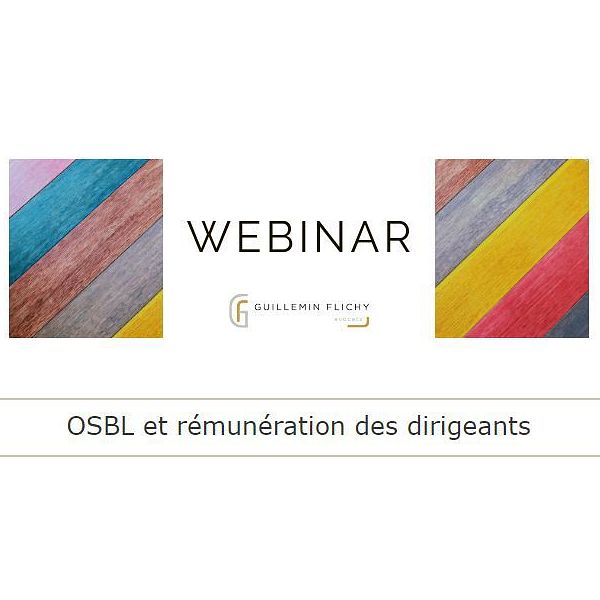
15/04/2019
OSBL et rémunération des dirigeants
#Webinar | 18 avril à 11h00 | OSBL et rémunération des dirigeants
Animé par Mathilde Delaunay Prieur, Avocat Of Counsel chez Guillemin Flichy.
Informations et inscription gratuite : http://ow.ly/okjw50qqO8M

12/04/2019
Très fiers de notre Team IP / IT
Très fiers de notre Team IP / IT : Alexis Guillemin, Mathilde Chevauchez & Fanny Rochoux, récompensés pour leur travail en atteignant le Top Tiers du classement Legal 500 - 2019 Europe | Trade marks and designs !

11/04/2019
La charge grevant une #donation d’œuvres d’art ne relève pas du droit moral de l’artiste.
La charge grevant une #donation d’œuvres d’art ne relève pas du droit moral de l’artiste.
De son vivant, un artiste consent une donation d’œuvres d’art à une association, assorties de plusieurs charges.
Suite au décès de l’artiste, sa veuve hérite de l’ensemble de ses biens corporels (meubles et immeubles) et de l’usufruit de ses droits patrimoniaux d’auteur ; la nue-propriété de ces droits ainsi que le droit moral est transmis aux enfants du couple.
Estimant que certaines charges de la donation n’ont pas été respectées, la veuve souhaite faire révoquer la donation. La Cour d’appel estime qu’elle n’a aucune qualité pour agir au motif que le respect de la charge relève du droit moral de l’artiste, lequel a été attribué aux enfants. La Cour de cassation censure cette décision, précisant que la donation porte sur des biens corporels et que l’action en révocation a pour objet la restitution de ces œuvres.
-
The valuation date of social security contributions based on BSAs: a reversal of case law. 20/10/2023
-
Evocation of the Chinon PDO – invalidity of the trademark 19/09/2023
-
The Council of the EU adopts its position on a proposal for a directive that aligns penalties for violation of EU sanctions 22/06/2023
-
Not all queens are entitled to the title 20/06/2023
-
Adoption by the European Parliament of the Directive on corporate sustainability due diligence (CSDD). 13/06/2023
-
The French Anti-Corruption Agency publishes a Compendium of practical information on indexes for measuring a geographical area's exposure to the risk of corruption. 08/06/2023
-
Publication, par l’Agence Française Anti-corruption, de ses résultats d'enquête statistique sur la prévention et la détection des atteintes à la probité au sein des secteurs fondatif et associatif 06/06/2023
-
Golden hello : the clause on the reimbursement of the welcome bonus in case of resignation is valid 23/05/2023
-
Bill to secure and regulate the French digital space 16/05/2023
-
JAN-BAUDOUIN LALLEMAND, NEW MEMBER OF THE PROBITY TEAM 12/05/2023
-
Corporate sustainability due diligence and fight against global deforestation in the European Union : The lastest developpements 11/05/2023
-
The presumption of resignation of an absent employee, or how to make the employers bear a responsibility that should not be theirs. 26/04/2023
-
Are rappers' voices easier to imitate than opera singers'? 12/04/2023
-
Publication par l'AFA de deux nouveaux guides pratiques, l'un sur l'évaluation de l'intégrité des tiers, l'autre sur les enquêtes internes 21/03/2023
-
Ranking Décideurs Magazine 2023 | IP-IT 13/03/2023
-
Reminders on the determination of the criteria for the order of dismissal 02/03/2023
-
Anouk Bréjon, new member of the Probity team 14/02/2023
-
“So then I took my turn / Oh, what a thing to have done / And it was all yellow” 31/01/2023
-
Publication of the new French Financial Prosecutor’s Guidelines on the implementation of the French Deferred Prosecution Agreement 17/01/2023
-
Happy new year 2023! 05/01/2023
-
The European Commission proposes to criminalize the violation of EU sanctions 20/12/2022
-
Application for a declaration of invalidity of trademarks: lack of interest in bringing proceedings 13/12/2022
-
Expatriated employee: obligation to provide information on the social protection system 07/12/2022
-
Protection of privacy: except in special cases, the accounts of corporate foundations do not have to be communicated to third parties 23/11/2022
-
GF PARTENAIRE DU MASTER 2, DROIT DES AFFAIRES 214 DE DAUPHINE ! 14/11/2022
-
Cancellation of the trademark “Travis Scott” filed in bad faith before the EUIPO 08/11/2022
-
Duty of vigilance: the Paris Judicial Court uses amici curiae 02/11/2022
-
Exchange of donor files between non-profit organisations: a regulated practice 19/10/2022
-
Digital Services Act (DSA): Final approval given by the Council 11/10/2022
-
Economic sanctions as a tool to eradicate global corruption 04/10/2022
-
Dismissal of an employee for moral harassment: no serious misconduct if the employee’s practices were known and tolerated by the management 20/09/2022
-
STAGE ÉLÈVE-AVOCAT / DROIT SOCIAL 30/08/2022
-
The right to an economic warning is reserved to the Social and Economic Committee representing the employees at company level 21/06/2022
-
Russia's war on Ukraine: EU adopts sixth package of sanctions against Russia and Belarus 08/06/2022
-
The Court of Cassation confirms the Macron scales of indemnification 24/05/2022
-
COLLABORATEUR(TRICE) IP/IT 17/05/2022
-
Update of the commercial tax exemption threshold for NPOs 13/05/2022
-
Clarification of the scope of the criminal liability of the acquiring company 03/05/2022
-
Digital Services Act: a provisional agreement was reached by the Council and the European Parliament 26/04/2022
-
Representative time-off : the procedure for disputing representative time-off has been simplified 20/04/2022
-
French organizations receiving donations: do not forget to file a declaration ! 12/04/2022
-
EU adopts fifth round of sanctions against Russia 08/04/2022
-
Entry into force of the law of March 21, 2022 aimed at improving the protection of whistleblowers 05/04/2022
-
Personal data: new censure of the French Conseil constitutionnel based on invasion of privacy 29/03/2022
-
INTA 2022 28/03/2022
-
Gross misconduct: discovery of the facts during the employee's sick leave 22/03/2022
-
Publication by AFA of a guide on good practices relating to the governance and fundraising process for public utility associations and foundations 15/03/2022
-
Ranking Leaders League 2022 | IP-IT 09/03/2022
-
Sanctions Against Russia: an Update on the Measures in Force 07/03/2022
-
Free riding: no need to seek an economic profit 01/03/2022
-
Variable compensation : bonus targets must be communicated in French 15/02/2022
-
Covid-19 crisis : new rules for meetings of the administration bodies of non-profit organizations 08/02/2022
-
Paris District Court has sole jurisdiction over matters regarding parent companies’ duty of care 01/02/2022
-
ÉLÈVE-AVOCAT / DROIT DES AFFAIRES - STAGE 6 MOIS 31/01/2022
-
Expected clarifications regarding the assignment of the right to the patent held by the employer on a mission invention 25/01/2022
-
“Rixain” Law : the new obligations regarding gender equality in management bodies 18/01/2022
-
A new obligation for associations and foundations applying for a subsidy or an agreement: the “Republican Commitment Contract” 11/01/2022
-
Happy New Year 2022 ! 06/01/2022
-
U.S. secondary sanctions and the European Blocking Statute: the Court of Justice of the European Union takes a stand for the first time 05/01/2022
-
The CNIL continues to intensify its controls regarding compliance with the regulations on cookies 17/12/2021
-
Publication by AFA of its Practical Guide on the prevention of conflicts of interest in companies 30/11/2021
-
Watch out for the purpose of surveillance devices! 23/11/2021
-
Publication of the “Rocher Report” : concrete proposals for committed companies ! 16/11/2021
-
U.S. Department of the Treasury Releases Sanctions Review 09/11/2021
-
Reversal of the French Court of Cassation’s case law: the application for registration of a trademark cannot be qualified as an act of infringement 02/11/2021
-
The employer is not obliged to reimburse the cost of virological tests to employees 26/10/2021
-
Compliance in M&A Transactions 19/07/2021
-
ÉLÈVE-AVOCAT / DROIT SOCIAL 02/06/2021
-
Thibault guillemin Interviewed by Florence Duprat on B Smart TV 31/05/2021
-
Ranking Leaders League 2021 | HUMAN CAPITAL & LABOR LAW 18/05/2021
-
U.S. imposes wide array of economic sanctions against Russia 29/04/2021
-
The Paris’ Court of Appeal upheld the sentence of the artist Jeff Koons for counterfeiting 22/04/2021
-
Publication of the AFA annual activity report 15/04/2021
-
Guillemin Flichy Awarded Again 14/04/2021
-
Big Bang for Legal Professions 29/03/2021
-
Ranking Leaders League 2021 | IP-IT 29/03/2021
-
Anti-corruption due diligence for mergers and acquisitions – AFA’s practical guide’s update 25/03/2021
-
Happy New Year! 19/01/2021
-
Communiqué de Presse 18/01/2021
-
Health crisis : the simplification rules regarding shareholders or board meetings and shareholders or board decisions are extended 07/10/2020
-
Nomination 05/10/2020
-
Intervention Apram Alexis Guillemin 25/09/2020
-
Une mesure de gel des avoirs prise en raison des activités de celui qui la subit ne constitue pas un cas de force majeure 25/09/2020
-
Agence française anticorruption : publication du rapport d’activité 2019 10/07/2020
-
ÉLÈVE-AVOCAT / DROIT SOCIAL 26/06/2020
-
Lutte contre la corruption internationale : diffusion d’une circulaire de politique pénale 26/06/2020
-
ÉLÈVE-AVOCAT / DROIT DES AFFAIRES 23/06/2020
-
Guillemin Flichy at the forefront of the social business sector 18/06/2020
-
PUBLICITE ALCOOL – LOI EVIN 10/06/2020
-
Simplifying French corporate law at the time of the health crisis 27/04/2020
-
Marques de vins - Quel degré d'attention pour le consommateur ? 27/04/2020
-
Covid-19 et protection des données personnelles 03/04/2020
-
Our specific organisation to face Covid-19 16/03/2020
-
Ranking Leaders League 2020 | Probity 11/03/2020
-
Ranking Leaders League 2020 | IP-IT 10/03/2020
-
Samedi 14 mars | "Squash au Palais" 10/03/2020
-
Bénéficiaires effectifs : les associés des sociétés à découvert 04/03/2020
-
Seconde décision de la Commission des sanctions de l’AFA 19/02/2020
-
A recent example of the corporate veil being pierced within a French group of companies 11/02/2020
-
Dénonciation d’actes de harcèlement : une diffusion trop large peut être lourde de conséquences 05/02/2020
-
Trophées du Droit 2020 31/01/2020
-
The Legal Tech Show must go on! 30/01/2020
-
Amende civile infligée à la société absorbante en raison de faits commis par la société absorbée : pas d’atteinte au principe de personnalité des peines 23/01/2020
-
Conclusion d’une nouvelle CJIP relative à des faits de « corruption d’agent public étranger » 16/01/2020
-
Preuves de l’insuffisance professionnelle révélées lors du congés maternité : distinction entre découverte fortuite et collecte active 13/01/2020
-
Loi de finances pour 2020 : focus sur le secteur non lucratif 10/01/2020
-
Happy New Year ! 09/01/2020
-
Une nouvelle version du Guide Pratique pour la Fonction Conformité Anticorruption dans l'Entreprise 02/01/2020
-
Une nouvelle protection européenne pour les lanceurs d'alerte 17/12/2019
-
5 questions sur la charte d'utilisation des médias sociaux en entreprise 29/11/2019
-
Licenciement nul : précisions sur l’indemnisation du salarié réintégré 19/11/2019
-
Salarié exposé à une substance toxique : la réparation du préjudice d’anxiété est possible 14/11/2019
-
Webinar - Save the date 07/11/2019
-
14th International M&A Conference 04/11/2019
-
Rank - Decideurs/Leaders League 04/11/2019
-
Guillemin Flichy & Ideal Groupe 22/10/2019
-
FNAF 2019 22/10/2019
-
Dans le silence des statuts, quel délai pour convoquer les associés d’une SAS ? 18/10/2019
-
Guillemin Flichy team is once again distinguished in compliance, fraud and investigations. 18/10/2019
-
GF partenaire du Master 2, Droit des affaires 214 de Dauphine ! 04/10/2019
-
Entreprises et contentieux : la médiation a le vent en poupe 02/10/2019
-
La conclusion d’une CJIP met fin aux poursuites relatives à l’imposition de Google en France 27/09/2019
-
Guillemin Flichy se renforce en corporate / M&A 24/09/2019
-
Nos réponses à vos 10 questions sur le télétravail 12/09/2019
-
Obtenir le chômage après une démission: c'est bientôt possible 10/09/2019
-
Pénal des affaires - Semaine Juridique Entreprises & Affaires 03/09/2019
-
Mécénat d’entreprise : nouvelles précisions de l’administration fiscale 02/09/2019
-
Pas de vacances pour la Cour de Justice de l’Union Européenne ! 26/08/2019
-
Publication de la loi n° 2019-744 de simplification, de clarification et d'actualisation du droit des sociétés du 19 juillet 2019 26/07/2019
-
Délibération du 4 juillet 2019 : La CNIL publie ses recommandations en matière de cookies et autres traceurs 25/07/2019
-
La Cour de cassation sauve le barème Macron ! 18/07/2019
-
Un après-midi hors du temps 12/07/2019
-
Première convention judiciaire d’intérêt public en matière de fraude fiscale 10/07/2019
-
Mise en œuvre de la convention judiciaire d’intérêt public : lignes directrices communes du parquet national financier et de l’Agence française anticorruption 09/07/2019
-
Le décret n°2019-531 du 27 mai 2019 précise les conditions de la déclaration incombant aux entreprises mécènes au-delà de 10.000€ de dons annuels. 04/07/2019
-
PETRUS contre PETRUS LAMBERTINI : Sois habile et relaxe toi ! 02/07/2019
-
L’Agence Française Anticorruption publie son rapport annuel pour 2018. 28/06/2019
-
Rapport Gauvain : Les juristes d’entreprise pourraient bientôt bénéficier d’un legal privilege. 27/06/2019
-
Les premières « raisons d’être » adoptées par les sociétés cotées 26/06/2019
-
Quel avenir pour le " barème Macron " ? 24/06/2019
-
Codification des dispositions relatives à l’agence nationale du sport 19/06/2019
-
Stagiaire M1 | M2 17/06/2019
-
Fait religieux dans l’entreprise et licenciement : fin d’une saga judiciaire 17/06/2019
-
Programme de conformité 13/06/2019
-
1er juin 2019 : Entrée en vigueur du décret d’application "Informatique et Libertés" 12/06/2019
-
Rémunération des lanceurs d’alerte en matière fiscale 05/06/2019
-
Commissaires aux comptes : le décret d’application de la loi PACTE est paru 04/06/2019
-
INTA 2019 ! 28/05/2019
-
Dissolution par le juge d’une société pour mésentente entre associés 23/05/2019
-
N’enregistre pas ‘Neymar’ qui veut 21/05/2019
-
Précisions quant aux dons de denrées alimentaires aux associations 21/05/2019
-
Contrôles, Enquêtes & Transactions 17/04/2019
-
#Burberry contre #Violetta 16/04/2019
-
OSBL et rémunération des dirigeants 15/04/2019
-
Très fiers de notre Team IP / IT 12/04/2019
-
La charge grevant une #donation d’œuvres d’art ne relève pas du droit moral de l’artiste. 11/04/2019
